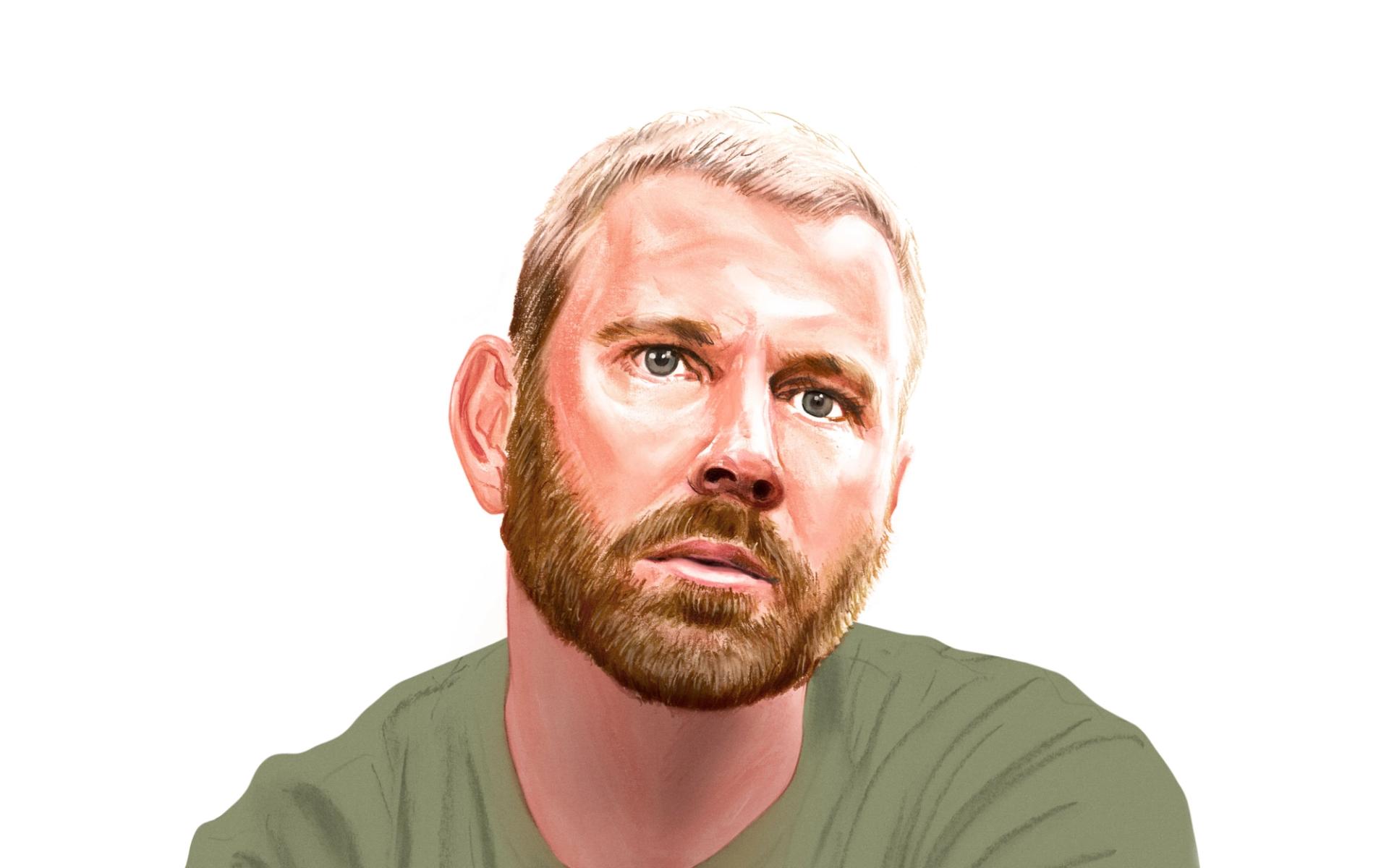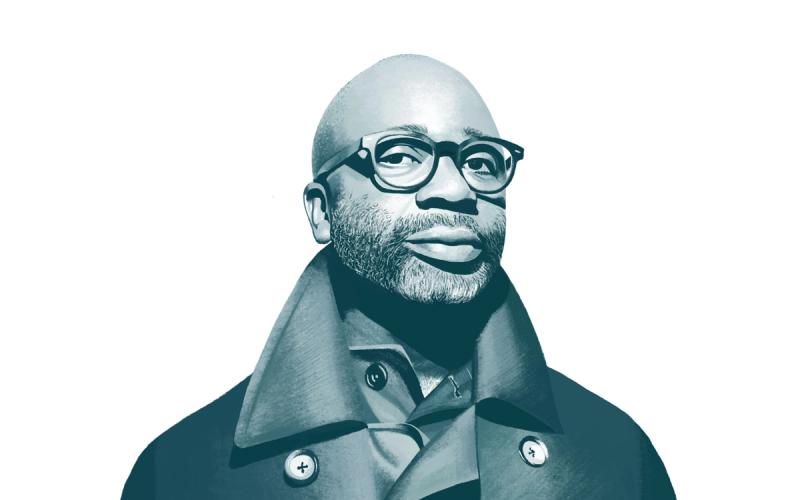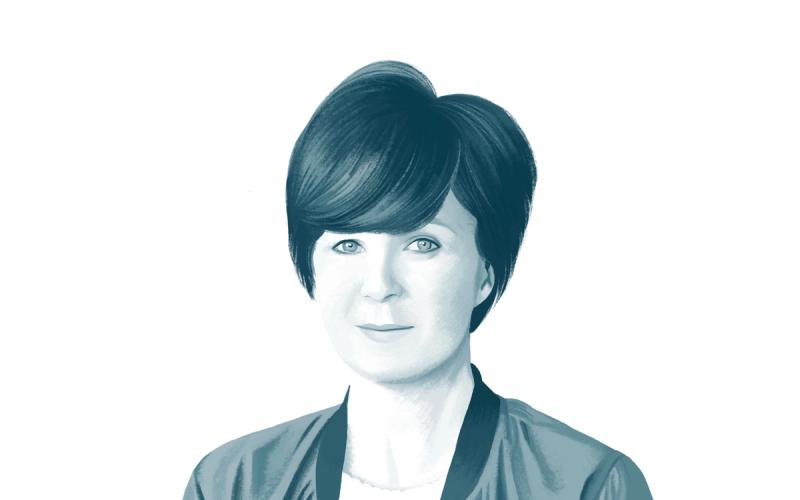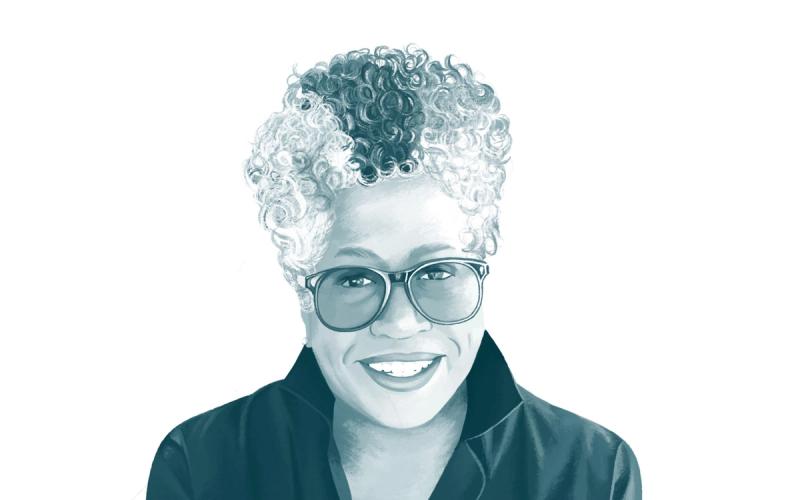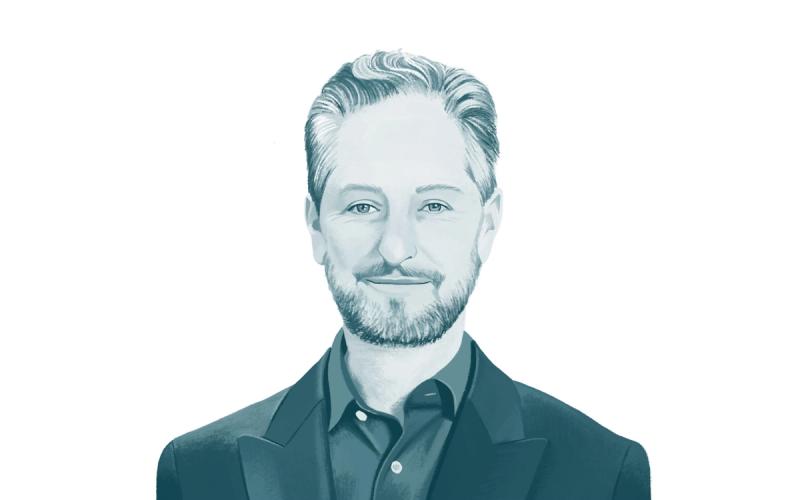Follow us on Instagram (@slowdown.media) and subscribe to our weekly newsletter to receive behind-the-scenes updates and carefully curated musings.
TRANSCRIPT
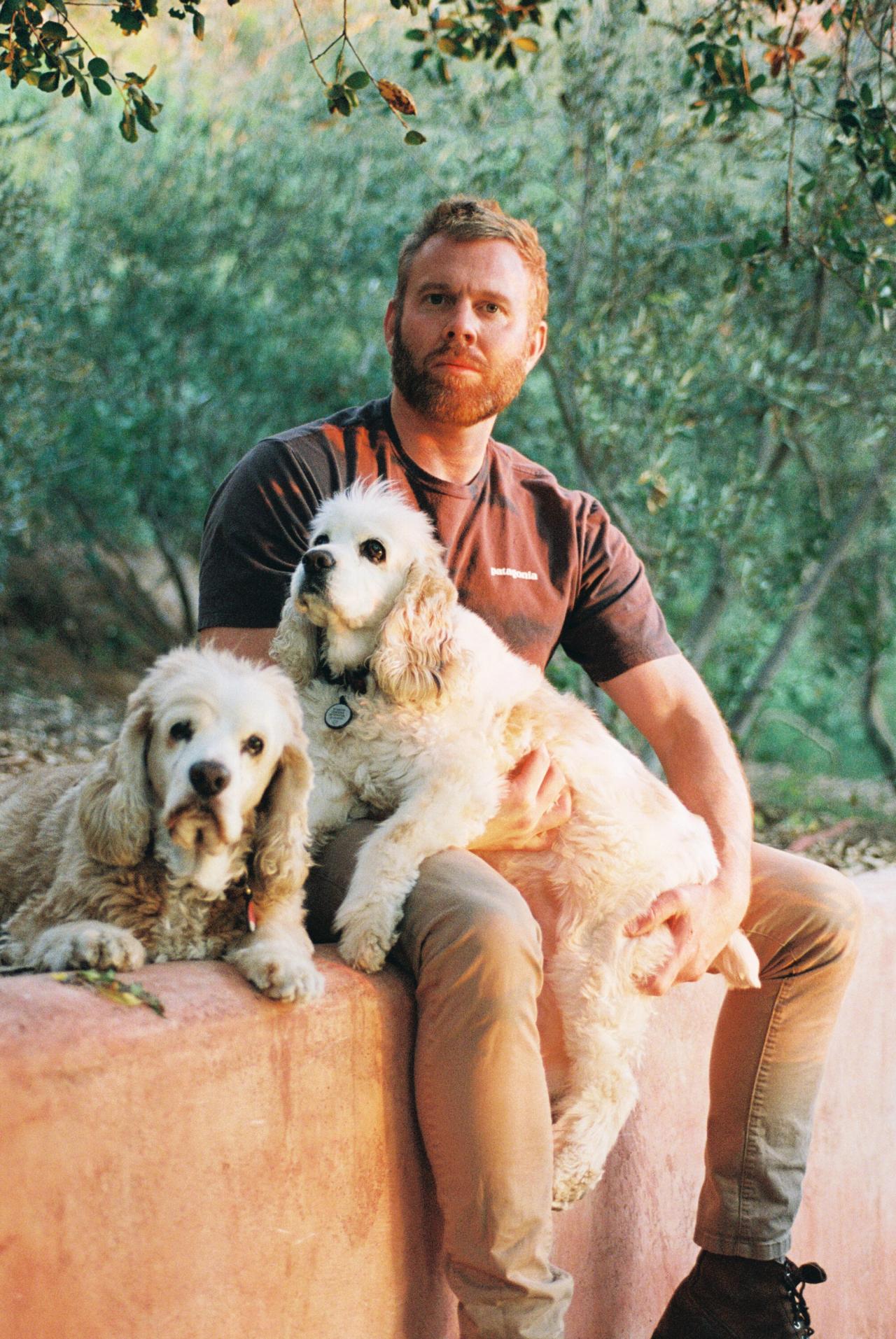
Richard Christiansen. (Photo: Pia Riverola)
SPENCER BAILEY: Hi, Richard. Welcome to Time Sensitive.
RICHARD CHRISTIANSEN: Hello! Thank you so much. I’m so happy to be here.
SB: So before we get into Flamingo Estate, this incredible compound in Los Angeles, I thought we would start with honey and beekeeping.
RC: Okay. My favorite things.
SB: You’ve been a beekeeper for a long time, grew up with beekeeper parents who have their own honey company in Australia.
RC: Yeah.
SB: You’ve noted that you and your identical twin brother spent many childhood holidays dressed up in bee costumes, waving people into your parents’ booth at honey conventions.
RC: Yeah.
SB: That’s pretty deep on the honey train. And honey is how you met the owner of the house that became Flamingo Estate. And through the Flamingo Estate brand, you’ve gotten to make honey with the likes of Will Ferrell, LeBron James…
RC: Ai Weiwei.
SB: Ai Weiwei, Ed Ruscha.
RC: Ed Ruscha, yeah.
SB: Julianne Moore. So it seems like, in your life, all roads lead back to bees and honey.
[Laughter]
RC: Maybe that’s true. Yeah, why not? My mom and dad are…. I hope you never meet them, I say this to people, “I hope you never sit next to them at a wedding or on a plane,” because all my dad wants to talk about is honey. It’s all he ever wants to talk about.
SB: [Laughs]
RC: And for many years in rural Australia, just making lots and lots and lots of honey, and geeking out over honey. My dad gets very competitive and really, really competitive with my honey.
SB: [Laughs]
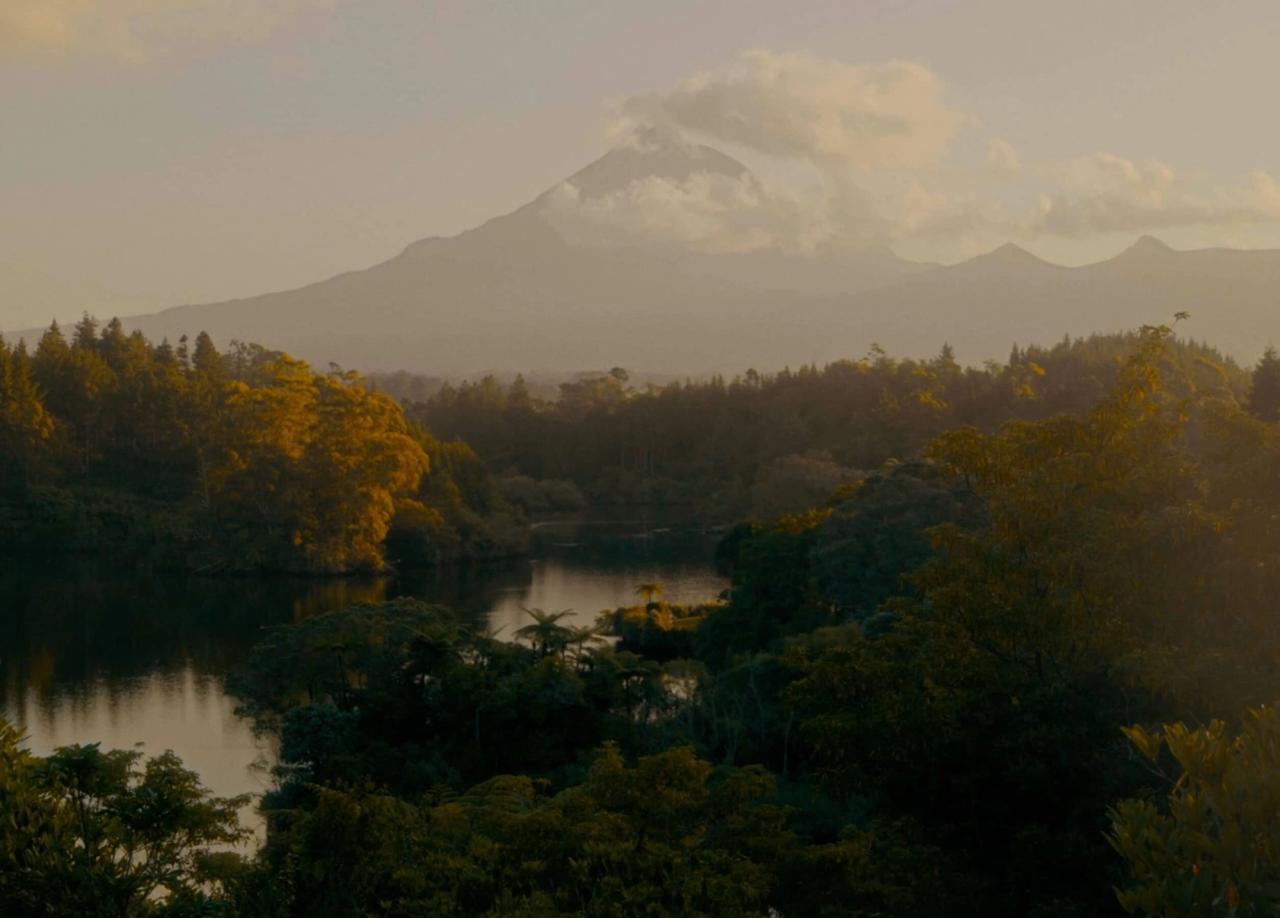
View of Mount Taranaki in New Zealand, where the Manuka plant, used for Manuka honey, blooms. (Courtesy Flamingo Estate).
RC: But it’s such a funny world. He introduced me to this group of rugby players, I guess, who were in New Zealand. These guys, just these bros, who were making honey on the very edge of a volcano in New Zealand, Mount Taranaki. The plant that you need to make Manuka honey was growing at such an incredible rate on the very, very top of the crater of this volcano. But it was inaccessible from car or even by foot.
So they would drop their hives in by helicopter. These huge winches. They’d drop them on the edge of the volcano and then they’d pull them up a few months later, also by helicopter. And that’s the Manuka that we sell. It’s in some of our products. And it’s like double the potency of any Manuka honey you’ll find anywhere. It’s like medicine. And you cannot get it anywhere but this tiny speck of green on the edge of this volcano. I’ve just met these really wild people through the honey. Yeah, it’s been amazing. And then, as you said, it was how we started. And I used to have honey here, bees here, when I lived in New York, up on Long Island. That’s always been in my family. Yeah.
SB: What have you learned about your time with bees?
“We are the least innovative company in the world.”
RC: Well, it’s a bit of a cliché, but I have grown to be…. I say to people, “Please don’t come and work with me if you are looking for innovation.” There’s nothing innovative going on here. We are the least innovative company in the world. We should always remain that way. We’re just doing the old-fashioned things the old-fashioned way, that maybe, and maybe right now in this time of a world obsessed with A.I. and the new fancy thing, maybe that is the most innovative thing to do right now. So it’s just a constant, to me, a constant reminder of that. Just a forever, timeless way of doing something. Maybe the repetition, the slow drumbeat of just constant hard work. Maybe simple as that.
SB: Yeah. Honey as a luxury in a way.
RC: Yeah. It’s liquid gold from mother nature, it really is a luxury, if it’s done well. I met this guy and he’s interviewed in the book.
SB: Your new book?
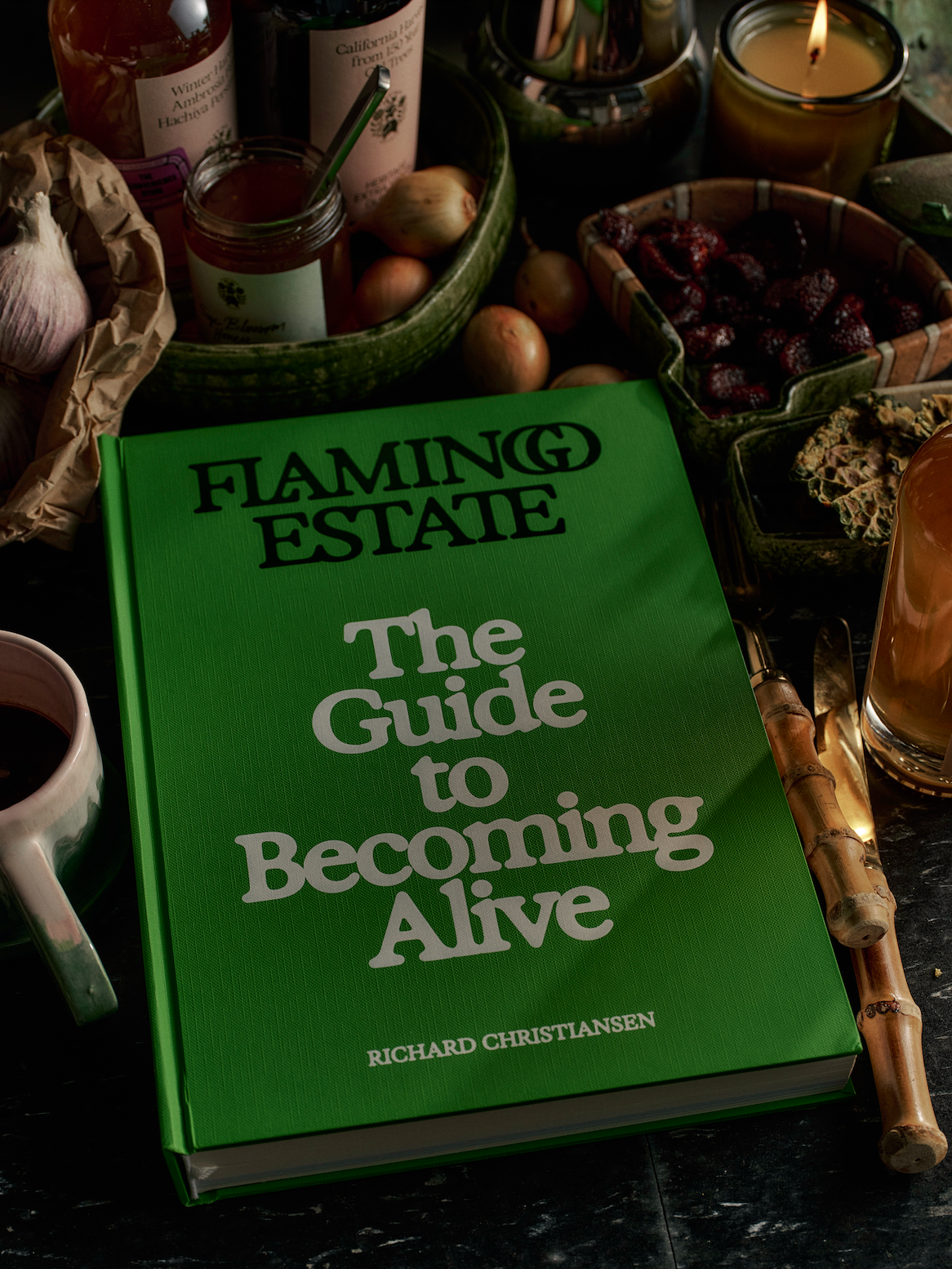
Cover of The Guide to Becoming Alive (2024) by Christiansen. (Photo: Hugh Davison. Courtesy Chronicle Books)
RC: My new book, [Flamingo Estate:] The Guide to Becoming Alive. In my new book, there’s an interview with Gonzalo [Samaranch Granados] who owns this amazing farm in Mexico in the Yucatan Peninsula. It is nine hundred acres of the thickest jungle I have ever seen. Just Disney jungle, just hours to get to the center. Nine hundred acres, he and his wife bought. You get to the center and there’s like a twenty-acre flat, a naturally cleared section where he’s growing endangered or rare vegetables and fruits.
And part of what he’s doing is bringing back soft-skin fruit and vegetables, because as I learned, many of the amazing tastes and flavors that we used to have have completely disappeared because those pieces of produce had thin skin and couldn’t be shipped. And now that we live in a food system that’s broken and upside down and needs everything to be shipped long distances, we’re losing all this amazing stuff that had thin skin. Side note—I’m also a big advocate for thin-skinned people as being a thing to live by. Let’s lean into being sensitive and bruising easily, but we can talk about that later.
SB: [Laughs]
RC: But anyway, Gonzalo. I was—you’re in this weird Noah’s Ark of a place, and I was like, “Why have you got hundreds of acres on each side of the farm, essentially?” And he said, “Oh, it’s because we chose it specifically because it’s too far for a bee to fly that may have touched chemicals or pesticides on the other side.” So it’s this giant barrier to protect the quality of the produce he’s growing, which is wild when you think about it. Isn’t that? Speaking of just a bee story—too far for a bee to fly so that he can protect the quality of his produce. Amazing.
[Laughter]
SB: Incredible. I didn’t imagine that’s where that would go. But in some ways Flamingo Estate—and we’ll definitely talk about what it means for you—but I would say it’s almost as much for you as it is for the bees.
RC: What’s that?
SB: The estate.
RC: Oh yeah, for sure. Yeah. In the same way, I’m also trying to stick myself in a jungle far away from everyone. Absolutely. Yeah.
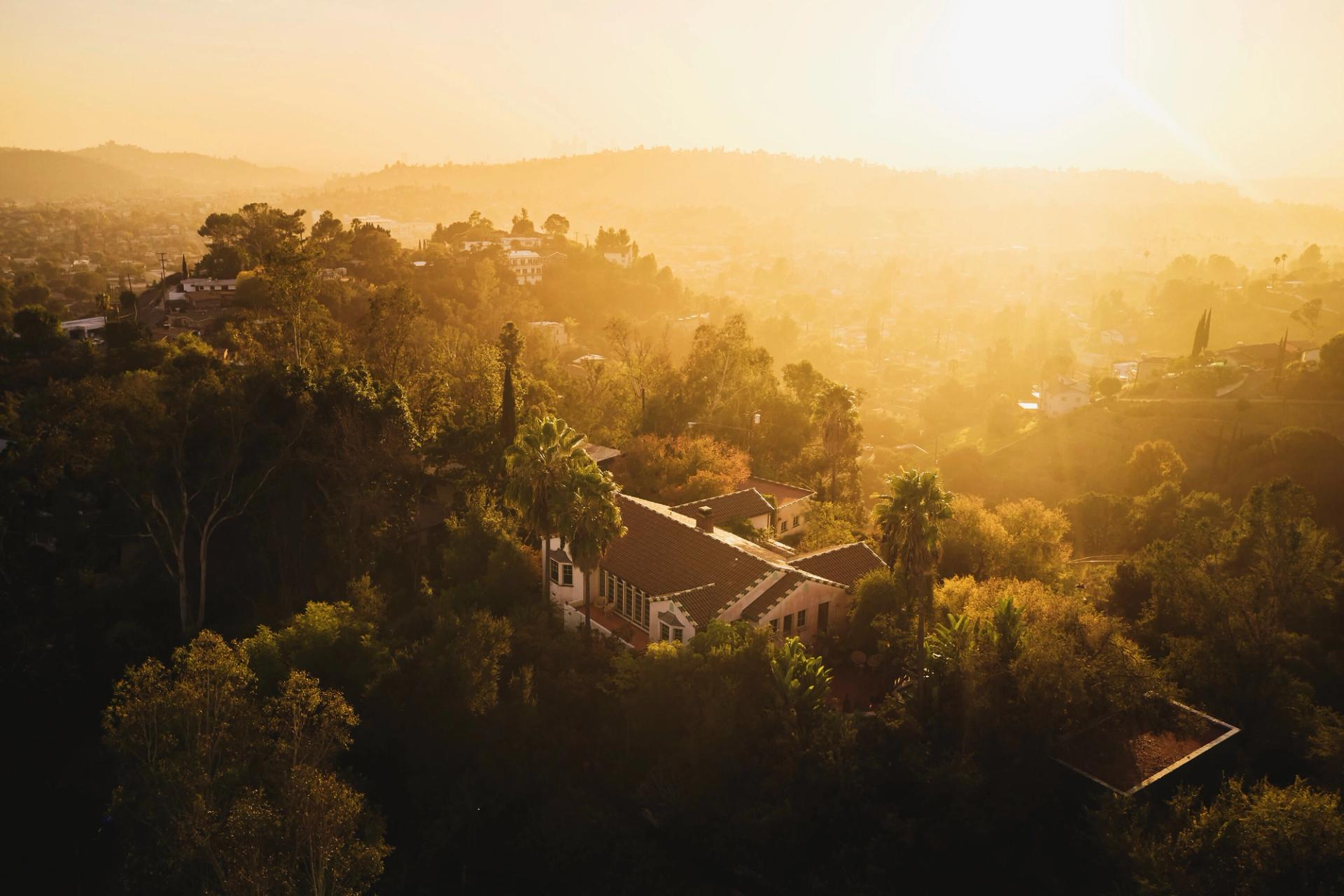
Flamingo Estate. (Photo: Christian Högstedt. Courtesy Flamingo Estate)
SB: At its heart, your new book—and, I would say, your Flamingo Estate venture as a whole—is about pleasure.
RC: Yeah.
SB: “Pleasure-Seeking 101” is how you aptly describe your book. And the first sentence is, “I believe pleasure is a human right.” You go on to note, “In a world that profits off our numbness, it is a radical act to wake up our senses. To champion the slow dive, the deep breath, the bee asleep in the Mallow, the drizzle of olive oil on a soft-boiled egg.” Why is it so essential in your mind to prioritize pleasure?
“I wanted to wake myself up again. I wanted to stop sleepwalking through life.”
RC: Well, it’s a couple of reasons. We’ve lost our senses. I think me, personally—the background, some people know this—I was in New York for almost twenty years. I had run a big business. I was exhausted. I was completely out of alignment. I was so unhealthy, I was so unhappy. I was lonely, actually, and I didn’t feel sexy. I was not sexual. I didn’t— Just everything was upside down. I had run myself ragged here, and I’d worked in that office every weekend, every night until ten o’clock. And poured my entire self-esteem into this business, which then crumbled during Covid. So for me, moving there, first and foremost, super selfish, I wanted to wake myself up again. I wanted to get sexual, sexy again, and I wanted to just stop sleepwalking through life.
For me, that began with a hot shower. For an hour. So it was really good soap, really good coffee in the morning. Just walking around my garden naked and just shutting the door. Covid was a really good protective bubble. Everything fell apart and I could just stay there in this garden and make stuff and grow stuff and cook stuff. I also had worked in fashion marketing for my whole life. I always thought I was too fat. So I never enjoyed food—never. I never would eat anything and not feel guilty about it. Real liberation only came to my feet when I told everyone else to fuck off. And I was like, “I’m going to eat what I want. I’m going to drink as much as I want. I’m going to just enjoy myself.” And that was radical for me. It’s radical for all of us to have that moment, I guess.
And I guess the other part about it is that—and I talk about this a bit in the book—it comes up in the interviews: Jane Goodall talks about it, Alice Waters talks about it, Martha Stewart talks about it, that we have lost our senses because our lives are becoming shallow because we’re living them through a phone. We’re living our whole experience through a small screen. We are losing our depth. We’re not tasting, we’re not touching, we’re not deeply inhaling and smelling. We’re not fully, fully in our senses. And now I know in my full heart that real luxury, real luxury, is just having all your senses on full volume. Eating, smelling, touching—it’s joy.
That’s at the heart of what— Flamingo is an accidental business, I never wanted really to start it, but that idea was at the heart of it, to do that for myself. And I’m very lucky that other people felt the same way.
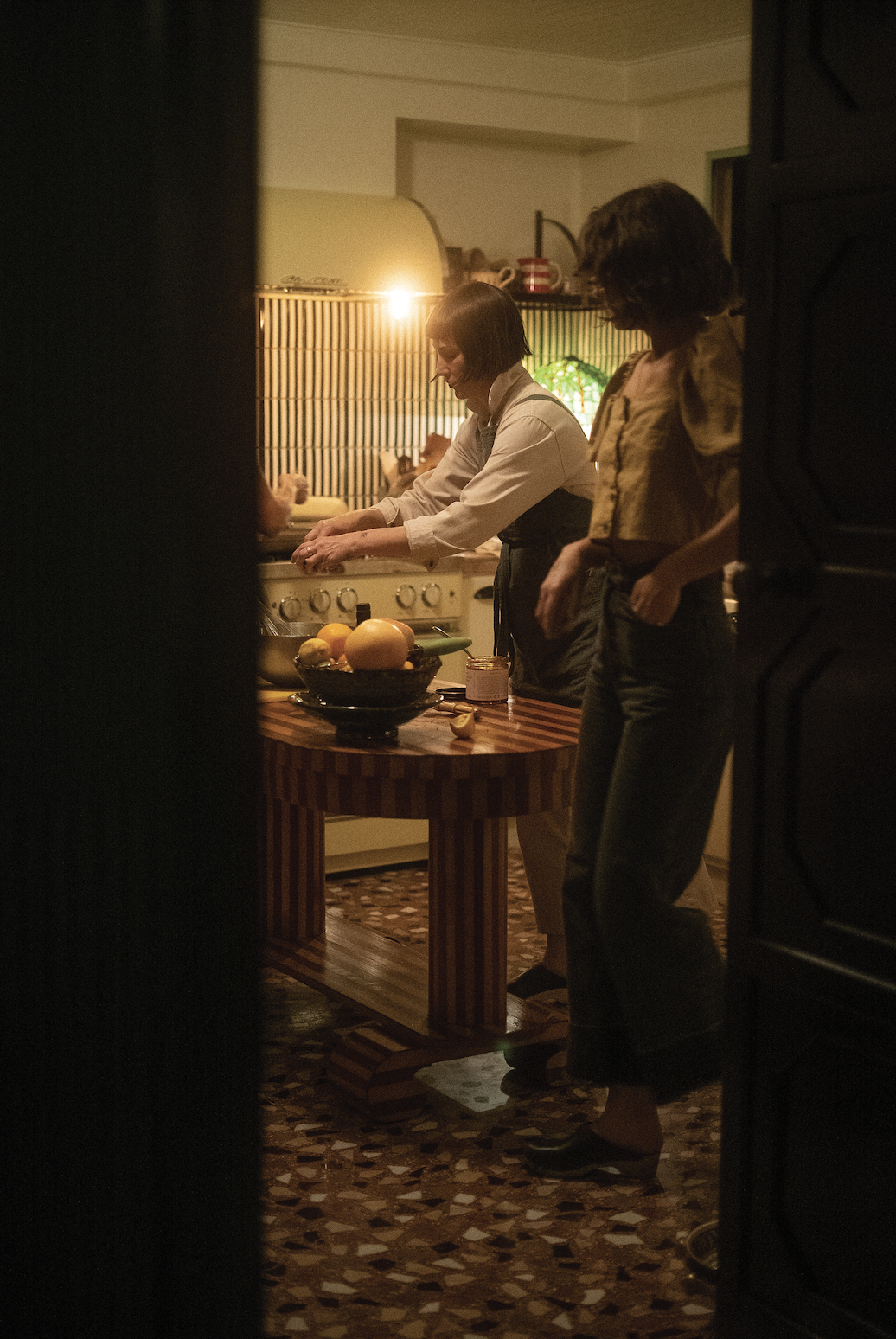
The kitchen at Flamingo Estate on the night of a dinner cooked by chef Andy Baraghani. (Courtesy Flamingo Estate)
SB: Yeah. And in a way, it was merging, subtly, I would say, so much of what you had done before: fashion marketing, luxury branding, advertising, but doing it in a way that almost applied that logic to a garden.
RC: No, no, to farming.
SB: And to a farm.
RC: No one had done that. And it was not— The Genesis story, which I can touch on quickly, was that during that time when I was taking long hot showers and trying to cook food, we met a farmer who wanted to, first week Covid, who was trying to sell vegetables because the restaurants had all closed. And she was going to lose her farm because she had no way to sell them. And I had this agency that was in limbo. We lost all of our clients. The L.A. team was there, and I said—I also owned a design bookshop in Los Angeles. I used to work the bookshop on the weekends. And she’d come in and I said, “No, no, bring your veggies here and we’ll sell them.” And that was the first Friday of Covid shutdown.
And I think she thought—I write this in the book—I think she thought we could sell a dozen boxes. We sold three hundred. And then the next Friday we sold six hundred, then we sold twelve hundred, and then six months later we had fifty trucks. And then one farm became ten became fifty became a hundred and twenty-eight farms. And just at that point, a few things happened at the same time that were so lucky that will never happen again. I realized that everyone was at home, they wanted to Instagram something. [Aaron] Harvey, my partner, designed these boxes that were Instagramable. Big, bright patterns on the outside. We applied design language to vegetables that—no one had really done that before, but it was really because we also had spent years working on Hermès campaigns, stuff like that. We were doing luxury-brand work at my old job. And I thought, let’s make this beautiful.
In the early days, I didn’t really, to be honest, think it was going to be a profitable business. I didn’t think it was going to be a long thing. I thought we were just having fun during early Covid. But that part of it, the putting strict design principles on farming, created something that we could never have imagined and it really was the combination of those things, I think, and lots of other interesting segues and stuff. And then the naïvety is such a beautiful thing. We were not talking to anyone. We were not looking over our shoulder. We were just doing stuff.
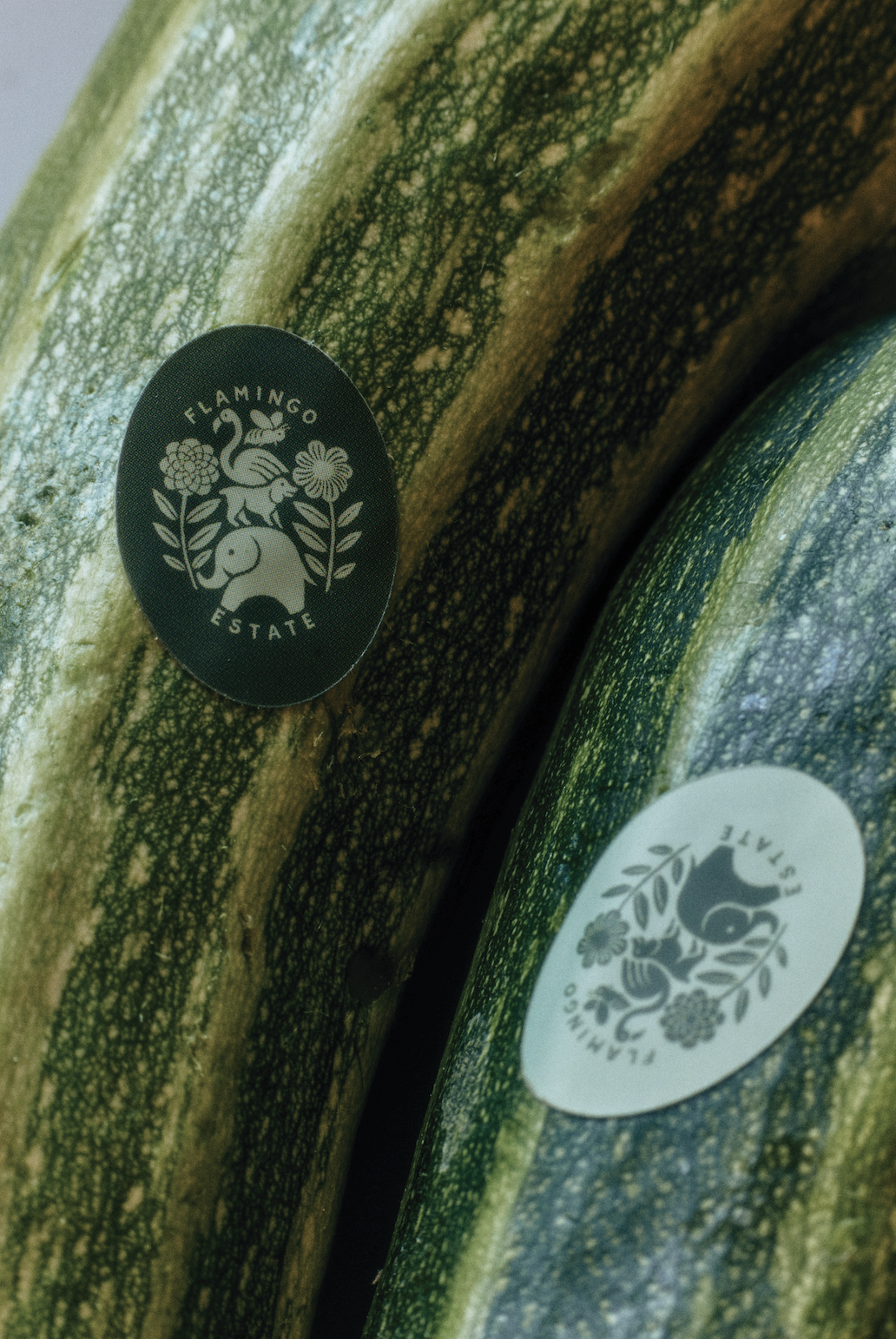
Flamingo Estate branding on summer squash in 2023. (Photo: Hugh Davison. Courtesy Flamingo Estate)
Then there was this really, really wonderful farmer who came to see me who said, “I heard you’re helping farmers out.” And I said, “Yes.” And he said, “I think I’ve got the most beautiful olive farm in America, and it’s the perfect acidity, and it’s the perfect altitude,” and bla bla bla. And I was like, “I really would love to help you, but we don’t need any more olive oil. We already have a farmer we’re helping.” And as he was leaving, I was like, “Oh, wait, maybe we can make soap with it or candles or something.” So that’s how we accidentally got into the beauty industry, which is now ninety percent of our business.
Then farmers would just come and say, “Hey, I’ve got thirty acres of sage. What can you make with it?” Or “I’ve got fifty acres of lavender, what can you do with it?” Or “I’ve got mountains of sea buckthorn oil,” or whatever the thing was. And I think we in the first year made a hundred and fifty products. Different individual products from stuff people would tell us they had—which is insanity. Now I know how businesses work. People are like, “Oh, my MPD roadmap has got two new product launches a year, and that’s even pushing it.” We did a hundred and fifty. It was wild and so much fun. I ramble. But then that Muppet Show of it all just was wild.
Then someone from Australia, from Mecca, which is a big beauty retailer in Australia, the owner came and saw us and said, “There’s this collision going on between nutrition and the beauty industry, and the green world and environmentalism. No one can deliver on that. Nobody. Because they’re not making stuff that way. You are harvesting and making stuff directly from farms. No one does that. It’s suicide for your margins. No one’s been able to figure it out. We think there’s something here. Let us help you scale it.” So then we started selling in Australia, which really took us from the kids’ table to the adults’ table. We had to figure out quickly how to make this a more well-oiled machine.
SB: Yeah, it’s one thing to make the CSA box sexy. [Laughs] It’s another thing to scale it.
RC: Take it across the world. Yeah, totally. To make it a global business. And to do it in that timeframe as well. It’s been a wild adventure actually.
SB: Yeah. You’ve called Flamingo Estate “a Farfetch for the green world” and “a Red Bull of the garden.” Can you elaborate on what you mean by that? Luxury, fashion and energy drinks aren’t typically associated with farming or gardening.
RC: Well, they’re two different references. I remember I forgot all about the Farfetch one. Only the Farfetch back in the day was my reference point for let’s go find the weird fashion thing from somewhere, right?
SB: Right.
“I’d like to be the home for everyone with green thumbs and middle fingers to say: This is a good place to tell beautiful creative stories.”
RC:We’re the purveyor of the weird purveyor—the place to go if you’re looking for that weird thing. So in a way, I thought we were acting that way for farmers. Or you need a weird Yakisugi oil from the island off the coast of Japan to make soap. We know where to find it now. Or that Manuka honey I talked about in Australia. That beautiful treasure. The Red Bull thing is more interesting, I think. I get bored, really, really bored with people who are like, “Oh, we do a lot of stuff for the environment and try to give as much money back as we can.” And people are like, “Oh, you want to be Patagonia for the bathroom or Patagonia for the kitchen?” And it’s a really obvious reference. And I was like, “No, I don’t. I want to be Red Bull for both those places. I want to take something that you have a conceived notion about, and I want to reframe it in a different way.”
Which is what Red Bull did, but part of that’s because when we talk about the environment or we talk about farming or we talk about sustainability, engagement plummets through the floor. People don’t care. People are sick of hearing about it. People are completely brainwashed. A bit of this is like, how do we trick people into getting excited about it? That’s why the LeBron James of it all, and the Kelly Wearstler of it all, and the Ai Weiwei and Ed Ruscha of it, all those people are: How do we bring culture into horticulture? How do we just make it really cool and then hopefully people vote with their pockets and they spend and we can give them money back and all that sort of stuff?
So it’s a little bit of that. I also think my dream of dreams would be that Flamingo becomes a media company, that we…. I feel like there’s this, in the gardening world, or even in books and in film and in TV, there’s like old lady gardening, like old English ladies gardening, and David Attenborough, the world is falling apart. And not a lot in between. It gets cheap and HGTV or it gets too intellectual. But there are so many stories of co-creation and design, a beautiful design language in nature and beautiful, beautiful creative stories that are amazing that we don’t hear about and we don’t talk about. So I’d like to be the, at one point, be the home for everyone with green thumbs and middle fingers to say: This is a good place to tell a story about that stuff. That’s part of why we’ve been making books and doing that sort of stuff.
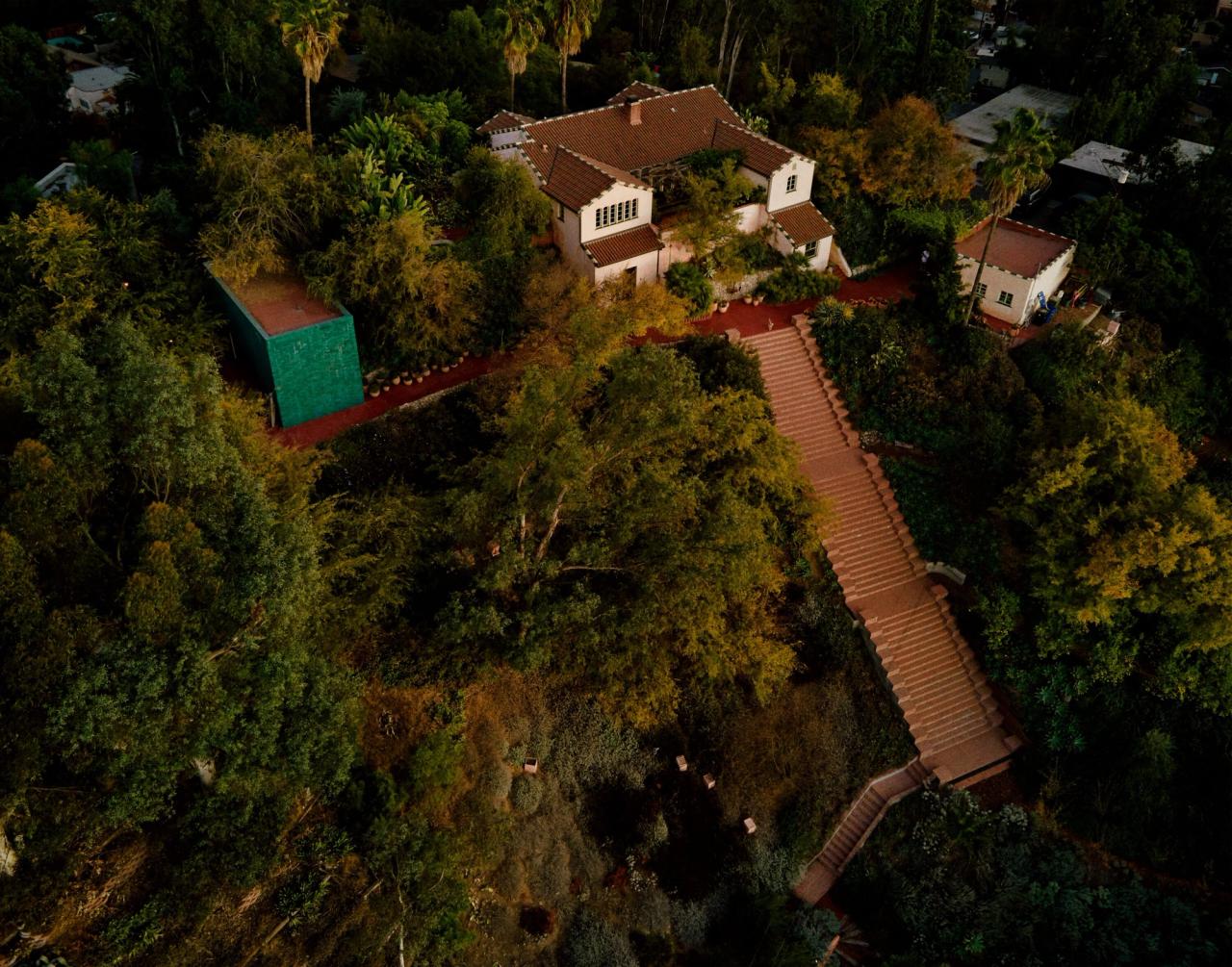
Aerial views of Flamingo Estate. (Courtesy Flamingo Estate)
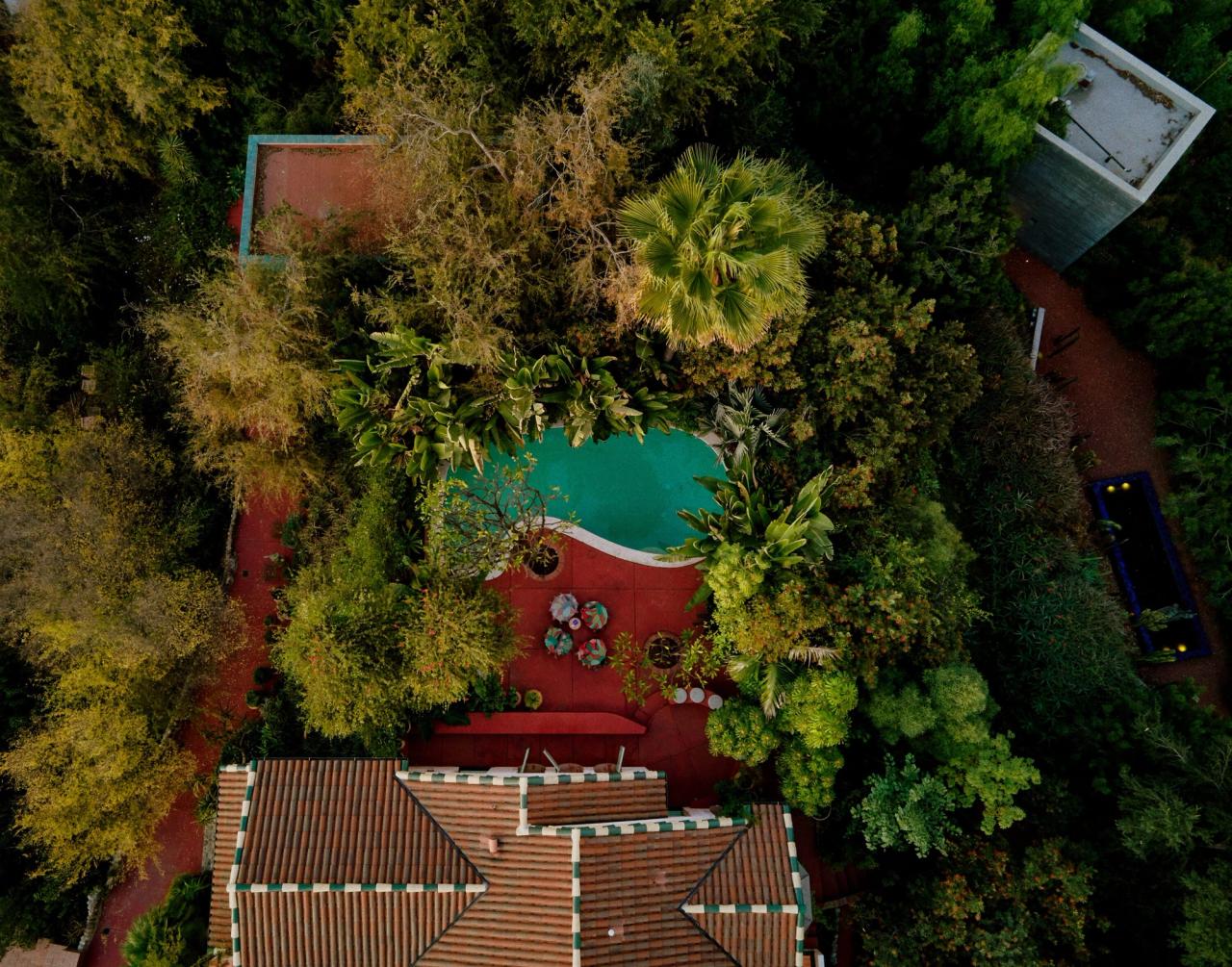
Aerial views of Flamingo Estate. (Courtesy Flamingo Estate)
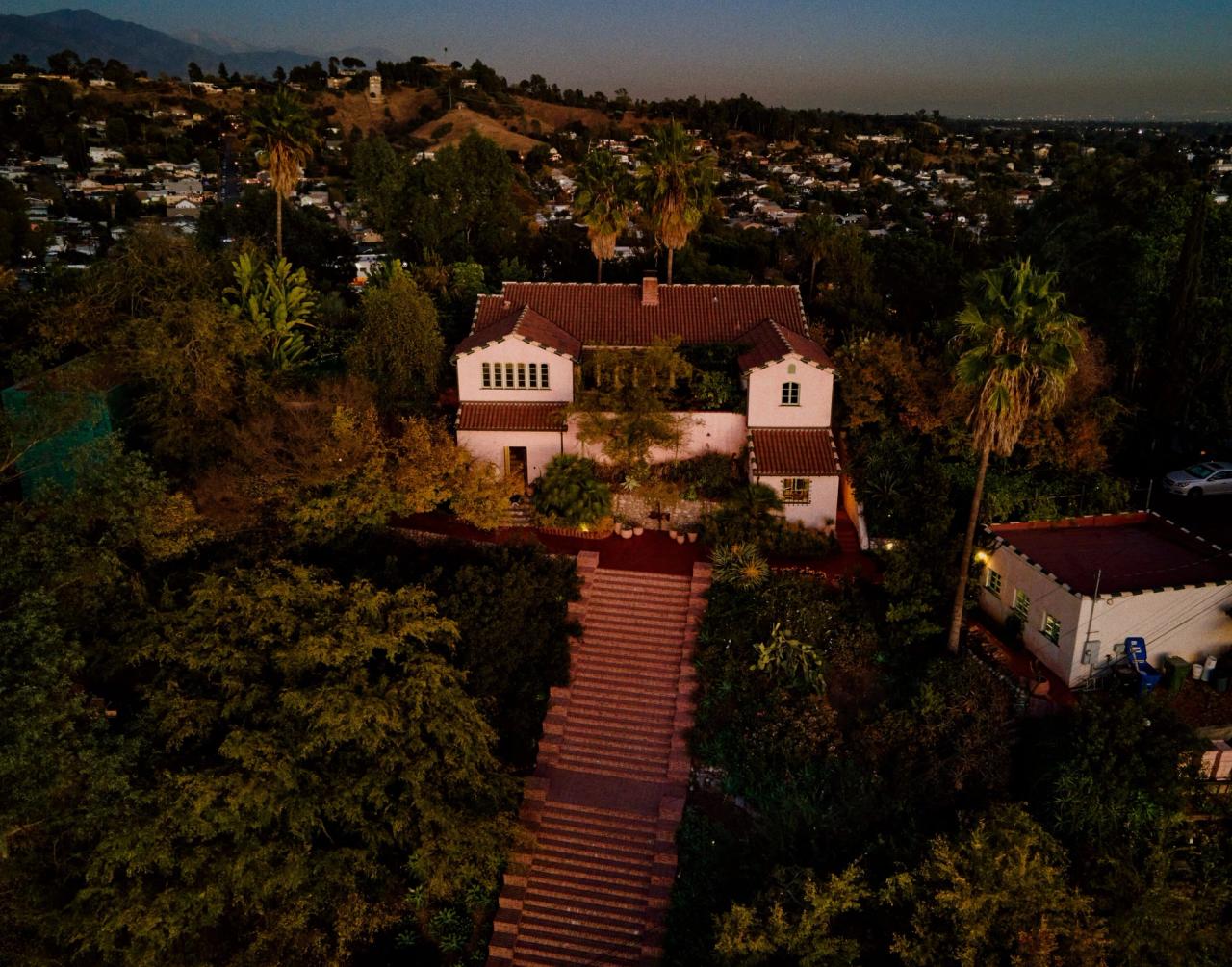
Aerial views of Flamingo Estate. (Courtesy Flamingo Estate)
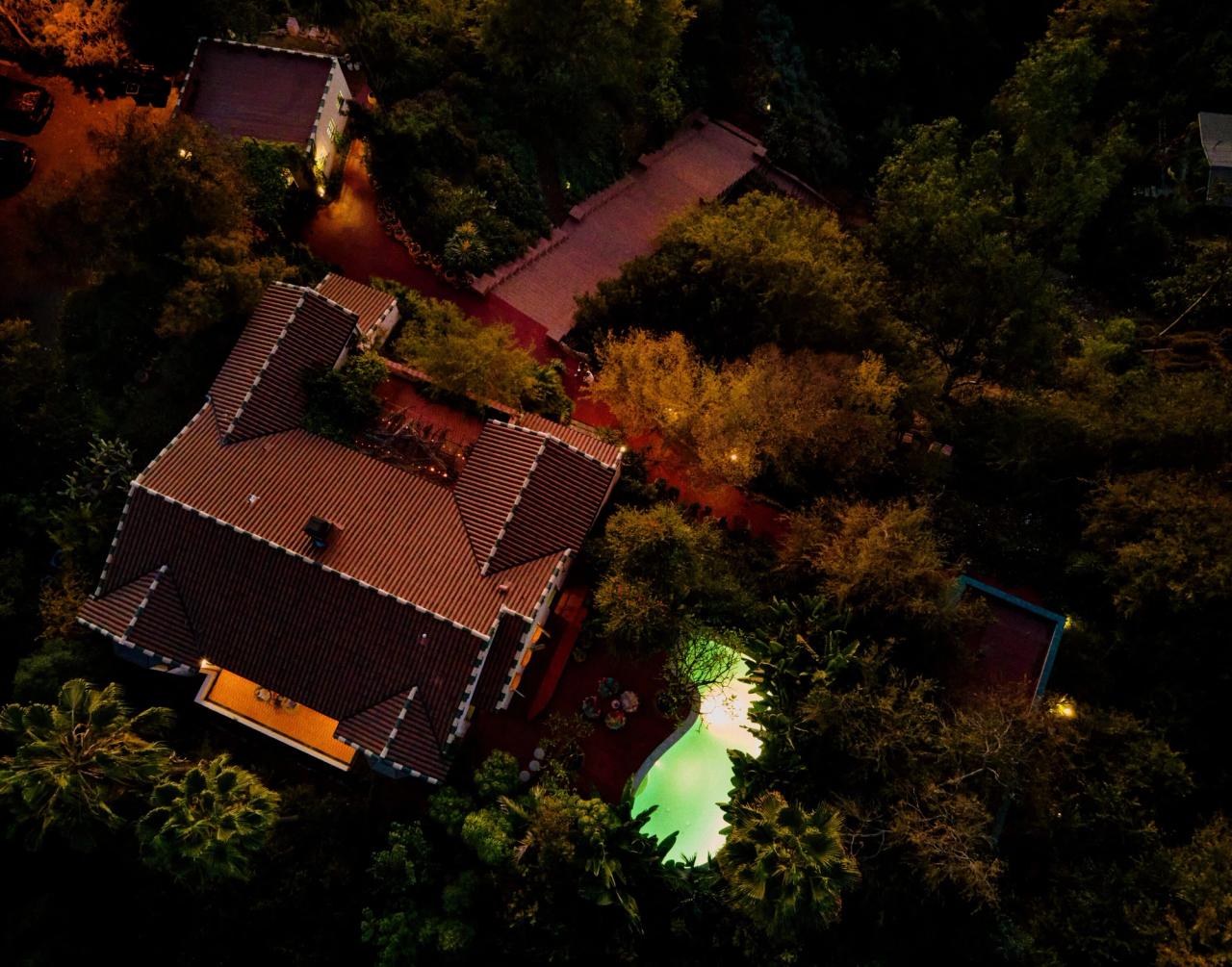
Aerial views of Flamingo Estate. (Courtesy Flamingo Estate)

Aerial views of Flamingo Estate. (Courtesy Flamingo Estate)

Aerial views of Flamingo Estate. (Courtesy Flamingo Estate)

Aerial views of Flamingo Estate. (Courtesy Flamingo Estate)

Aerial views of Flamingo Estate. (Courtesy Flamingo Estate)

Aerial views of Flamingo Estate. (Courtesy Flamingo Estate)

Aerial views of Flamingo Estate. (Courtesy Flamingo Estate)

Aerial views of Flamingo Estate. (Courtesy Flamingo Estate)

Aerial views of Flamingo Estate. (Courtesy Flamingo Estate)
SB: We have to talk about L.A. You’ve said, “I don’t think this brand could have happened anywhere—”
RC: Nowhere else.
SB: … “but Los Angeles.”
“There’s a little bit of magic and make-believe in Los Angeles, and you get a wide berth for your audacity there.”
RC: Nowhere else. I’m so impressed—you really did read the book. I’m so impressed.
SB: Why L.A., though?
RC: Because we’re on the doorstep of Hollywood. I think we were so lucky that, in the early days, people in our neighborhood and our network, to be honest, Instagrammed stuff. And they happen to be the Kris Jenners of it all and the Oprahs of it all, and the Ellens of it all, and the Chrissy Teigens. And I think that those people who we’re very, very, very, very, very grateful for their early support were just customers who got gifted stuff from other people. We’ve never paid anyone. We never will. We don’t operate that way. But people have been there to support us, which has been great.
And I think there was a little bit of that Hollywood glamour of it all a little bit. I went to this, it’s funny, I haven’t told this story before. I took it out of the book, but I went to this investment meeting with this bunch of finance bros, and this guy walked in and he was kind of awful. And he walked in, he’s like, “Oh, I know you, you created homosexual vegetables.”
SB: [Laughs]
RC: And I was like, “What are you fucking talking about?” And I think what he meant was all of his wife’s friends and all of her fancy gay friends liked my oranges. But I took it as a compliment. I was like, “Oh, okay, that’s cool.” If that’s the corner we’re in….
SB: Well, it is radical what you’ve been able to build in such a short period of time. And I think to that point, it is only in L.A., right?
RC: Also because L.A.’s the Walt Disney and the David Hockney and everyone comes to L.A. to be a star. That’s in the water there, right?
SB: You even have the Jane Fonda—
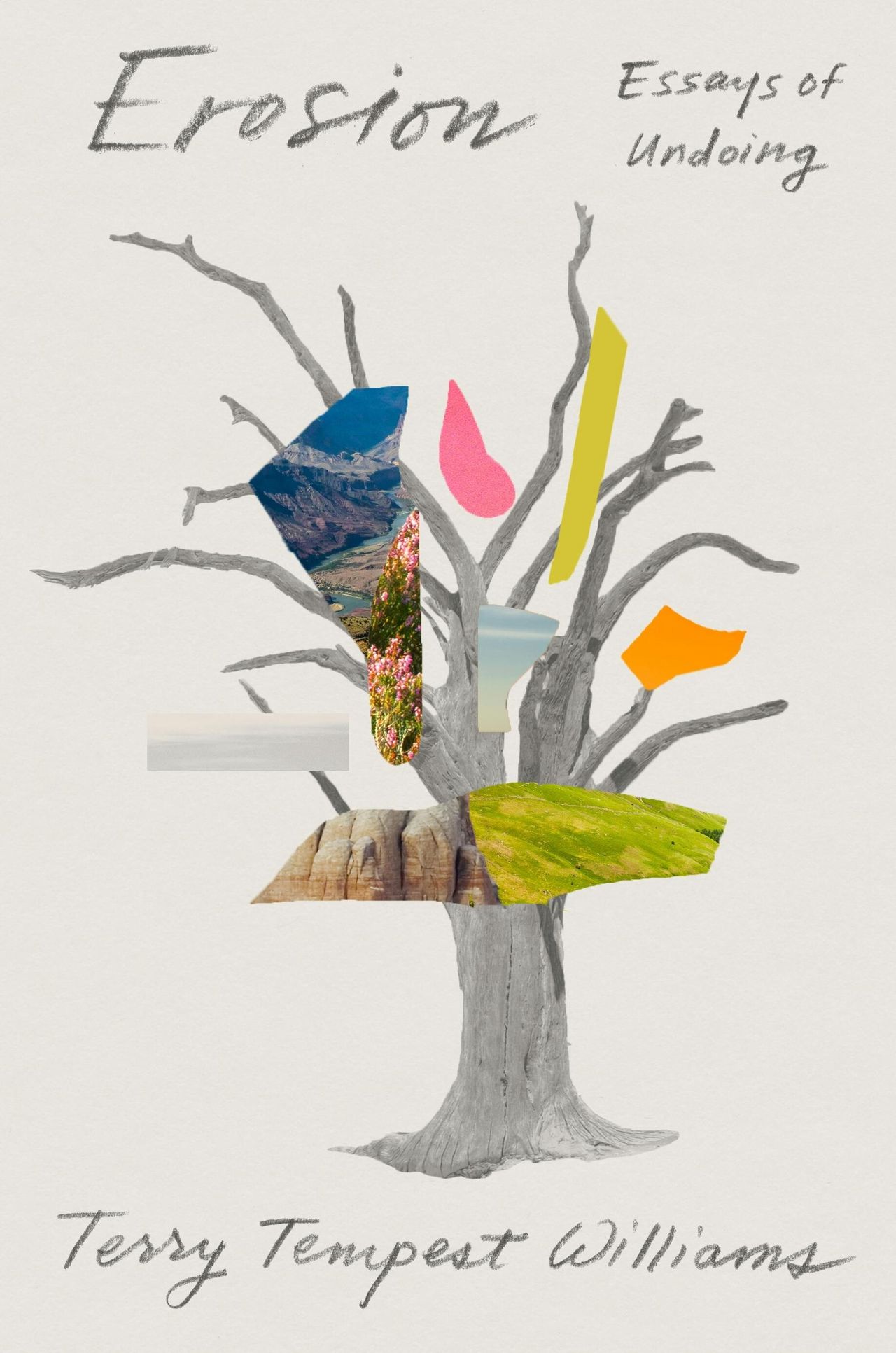
Cover of Erosion (2019) by Terry Tempest Williams. (Courtesy Macmillan)
RC: The Jane Fonda of it all, yeah, Jane’s in the book. Yeah, I think that there’s a little bit of magic and make-believe in Los Angeles, and you get a wide berth for your audacity there. When you say we want to do something like that there, I feel like everyone has each other’s back.
SB: Yeah. And it becomes a microcosmic platform for so many other strains of thought. I loved seeing Terry Tempest Williams in your book.
RC: Oh my God, she’s amazing. I’m so glad you know who she is.
SB: Yeah.
RC: Amazing woman. Prolific.
SB: Brilliant thinker and writer on the American West and the environment.
RC: Yeah. Erosion, if anyone hasn’t read that book, it moved me so deeply. And her view on the erosion of the American environment under Trump, the first version of Trump, but also the erosion about moral code, and—it’s a wildly beautiful book. But she’s also been so heavily criticized and she almost went to prison, lost her job, standing up against big oil. She’s amazing. She’s incredible.
SB: While we’re still talking Flamingo—
RC: Sorry, about Terry, can I say one thing? In that interview, her interview was so hard to translate to transcribe because Terry’s a wonderful talker, a big storyteller.
SB: Your conversation with her in the book.
RC: My conversation with her in the book. She talks about just walking out of her house at night. She lives in the desert in Utah, so she talks about night walking. And the smell of the air and seeing the eyes of the animals at night, and the sounds that she hears at night. When we talked a minute ago about losing our senses, her job is to keep her senses on. She’s looking at the world and listening and touching it. And maybe she had to get out of a big city to be able to turn that on. But hearing her articulate that, you’re like, “Oh, you are connected to your world in a way that many of us are not.” And it’s really something beautiful.
SB: I wanted to talk about time related to your products. In the book, you note that you don’t make replicas, which is a notion I love. I think in culture we’ve become so used to receiving things in a continuum. The idea that every time you go into the grocery store, the blueberries should look the same.
RC: Yeah.
SB: And you note that “we make time capsules. Fossilized inside each jar of honey or bottle of olive oil or bar of soap is the record of the place and time it was made.” So that bar of soap this year is not going to be the same as the one you might get six months or twelve months from now.
And this emphasis on making, growing in time and weather, the weather, I think, gets lost so often. People just want to go into the grocery store and find the thing that looks the same as the last time they bought it. And that’s not a good thing. Could you talk about that and also why the way your approach to it is even more of, I would say, a luxury—it’s this handcrafted idea?
“I have become obsessed with this idea of radical inconsistency.”
RC: Yeah, I could talk about it for hours. I have become obsessed with this idea of radical inconsistency, which is what you’re talking about. Which is a nightmare if you’re trying to scale a brand for wholesalers to get excited about it. Because where it shows up for me in the biggest opportunity for all of us is in the beauty space, in the beauty world or the bath and body world, because you go to wherever you get that stuff that’s in your bathroom, and it has smelled the same for years. That bottle of Aesop hand soap has smelled the same for twenty years. No inconsistency. And somehow we encourage that from the stuff we use every day.
But if something’s made on a farm or grown from real things, it should be different season to season. The rainfall and the sunlight will completely change the way an essential oil is harvested and smelt. The sage will be different this season than it was lost. The essential oil will be similar, but definitely not the same. I get very, very, very excited about that. Why would you want it to be the same?
SB: Yeah, we enjoy our wine as a vintage, right?
RC: Absolutely. We encourage it from wine. We sort of encourage it in olive oil, so why don’t we encourage it in hand soap? It should always be really good, but it should never be the same. How boring is that? I’ve started to, and that said, philosophy started to creep in not just to products, but to people too. I’m really interested in radical inconsistency in my personal life, and with my friends and the way I spend my time, and people around me. I really think there’s a lot of headwind for all of us just to be the same all the time. I want to grow and I want to change, and I want that from our products, too.
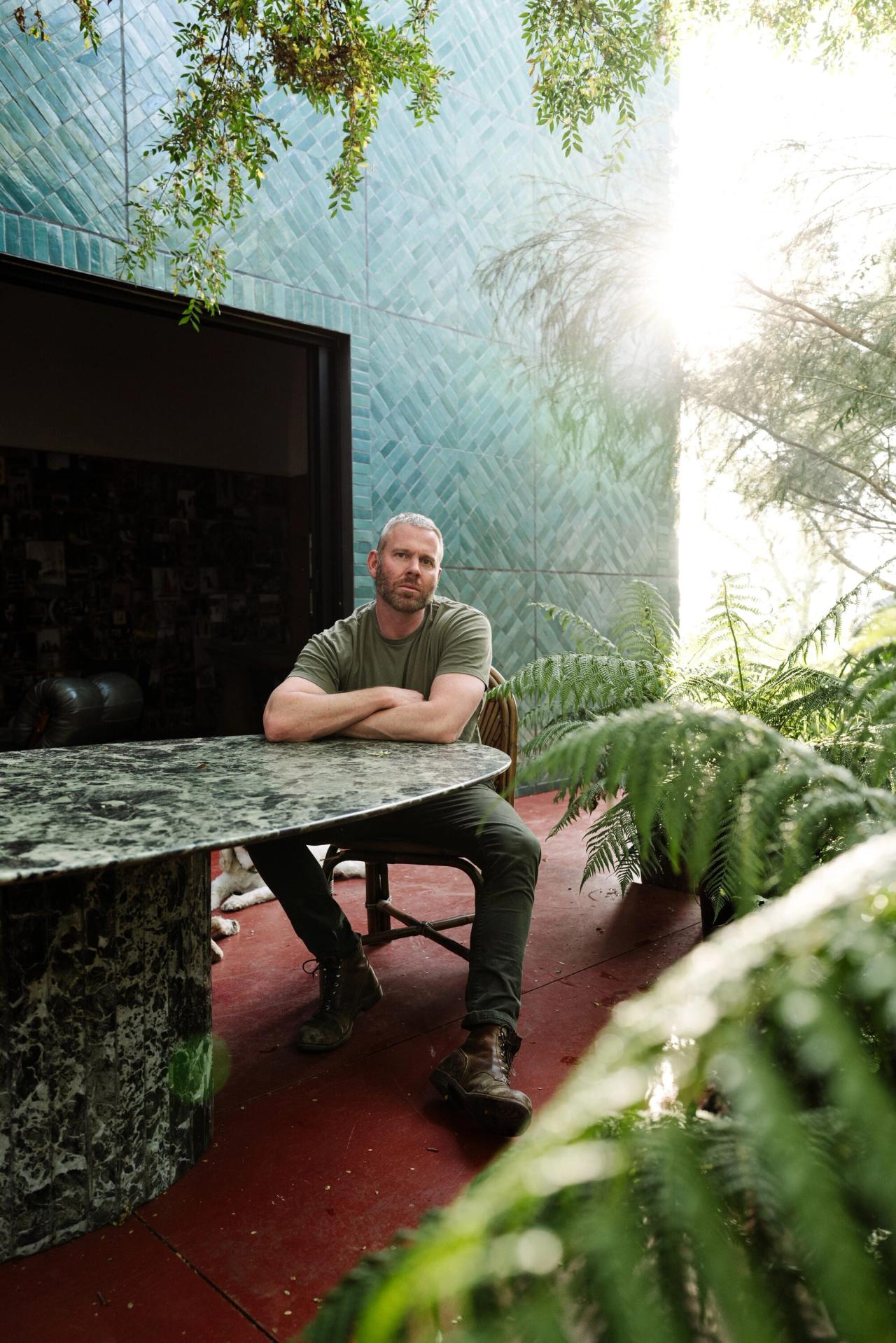
Christiansen at home at Flamingo Estate. (Photo: Ana Lui. Courtesy Flamingo Estate)
It’s been interesting. I think that’s one of the things I really learned so much that, at times, I wasn’t expecting to. For example, just scaling the brand. Just how hard it is to get a wholesaler to get on board about that idea that it’s going to be different all the time. Or say like, okay, we’re going to have a couple of core things that will always be in stock, but then we’re going to lean heavily into seasonal harvests of something. There’ll be a hundred of them, a hundred bars of soap and that’s all, or something like that. And lots of different versions of that all the time. It takes a very special kind of operations team. The operations team at Flamingo, they come ready to know that there’s going to be a hundred different products coming through the pipeline.
SB: Embracing inconsistencies, baked into the business model.
RC: Yeah. And this is where the radical awakening came from me—most of the shit that we buy comes from contract manufacturers. You get it from a bulk house, you don’t even know what farm it comes from, let alone what country, sometimes, it comes from. A good example: we’re selling tea from Japan. And this other very fancy tea company has another Earl Grey tea. Not only does it not say the farm, it doesn’t even say the country that tea is harvested from. I think it’s a mixture of tea from India and China.
I think when we lose sight of where our food, especially where our food is picked from, and also I would also say the beauty products we use, we start to lose visibility to how those people should be treated, how they are treating the soil, how they’re treating their workers, how they’re treating the environment. All that stuff disappears.
Part of the new lesson, for me, the surprise, was also the downstream effect of all that stuff. There’s a great quote, Alice Waters says this in her interview in the book, and she has famously said this for a long time, “What you put in your mouth is what you put in the world.” What she meant by that was that the fast food– and processed food–boom in the forties and the fifties, it made us digest the values of that food, which is faster, faster, faster, cheaper, cheaper, cheaper, and more, more, more. And she says, and I agree that that way of thinking about our lives is very irresponsible and very, very selfish.
“This idea that food should get cheaper is a lie. Food needs to get more expensive.”
And then we trickle down to the bottom of the food chain to the person who’s there picking something. They’re getting paid not a living wage. The farmers are having to use chemicals because they have to cut corners. This idea that food should get cheaper is a lie. Food needs to get more expensive. And the supermarket pricing of food, which trickles down to commodity ingredients for every other product we use is making the planet sick because it means we’re using a lot of chemicals to get stuff cheaply, and we’re shipping stuff across the world that we shouldn’t be; half the flowers in New York are flown in from South America, and that also shouldn’t happen.
There’s all this other stuff that we don’t see—that I’ve become schooled in, actually, and I feel really passionate about it. But as I said in the beginning, people would much rather talk about how nice the house is or how pretty the packaging is. So we don’t talk about it a lot. We want to trick people into getting responsible, in a way. It’s a bit of dog-whistle marketing.
SB: But at the same time, it is true I think what you’re saying, what Alice has said. Culture at large, so much of it begins in agriculture, and actually if you go into the etymology of the word, culture started with agriculture. It is a reference to cultivating the soil. And then it took on more spiritual meanings, starting with Cicero and other thinkers. I’ve totally nerded out on this.
RC: Wow, I love this. Where were you a year ago when I was writing this?
[Laughter]
SB: I’ve totally nerded out on this, but I am very fascinated about this junction between agriculture and culture, the etymology of the word. And also how the very notion of culture actually came out of the land. So I think part of what you’re talking about, part of the movement of people listening to this show or buying your product, I think this is part and parcel of a whole community or communities of people that care deeply about this meaning of culture and reshaping ideas of what culture is and should be in our current time—a time of environmental degradation, a time of pesticide farming and all these other things. Caring about the senses, back to the senses.
RC: Yeah, ’cause that stuff also smells better and tastes better. Good food is growing in the soil.
SB: There’s actually, in researching for this, I came across, I don’t know if it was an interview or if it’s in the book, but you talked about this meeting you had with Monsanto.
RC: Oh, wow. A long time ago. Yeah.
SB: And I was fascinated to learn that you had even had the opportunity to meet with them. And it seemed like you were almost laughed out of the room.
RC: I was laughed out of the room. Yeah.
SB: Maybe just share a little bit about that, because Monsanto, for the uninitiated, is the company probably foremost responsible for our food system as it currently is. Which is to say—
RC: And three quarters of the cancer in the world. [Laughs] Really. Yeah.
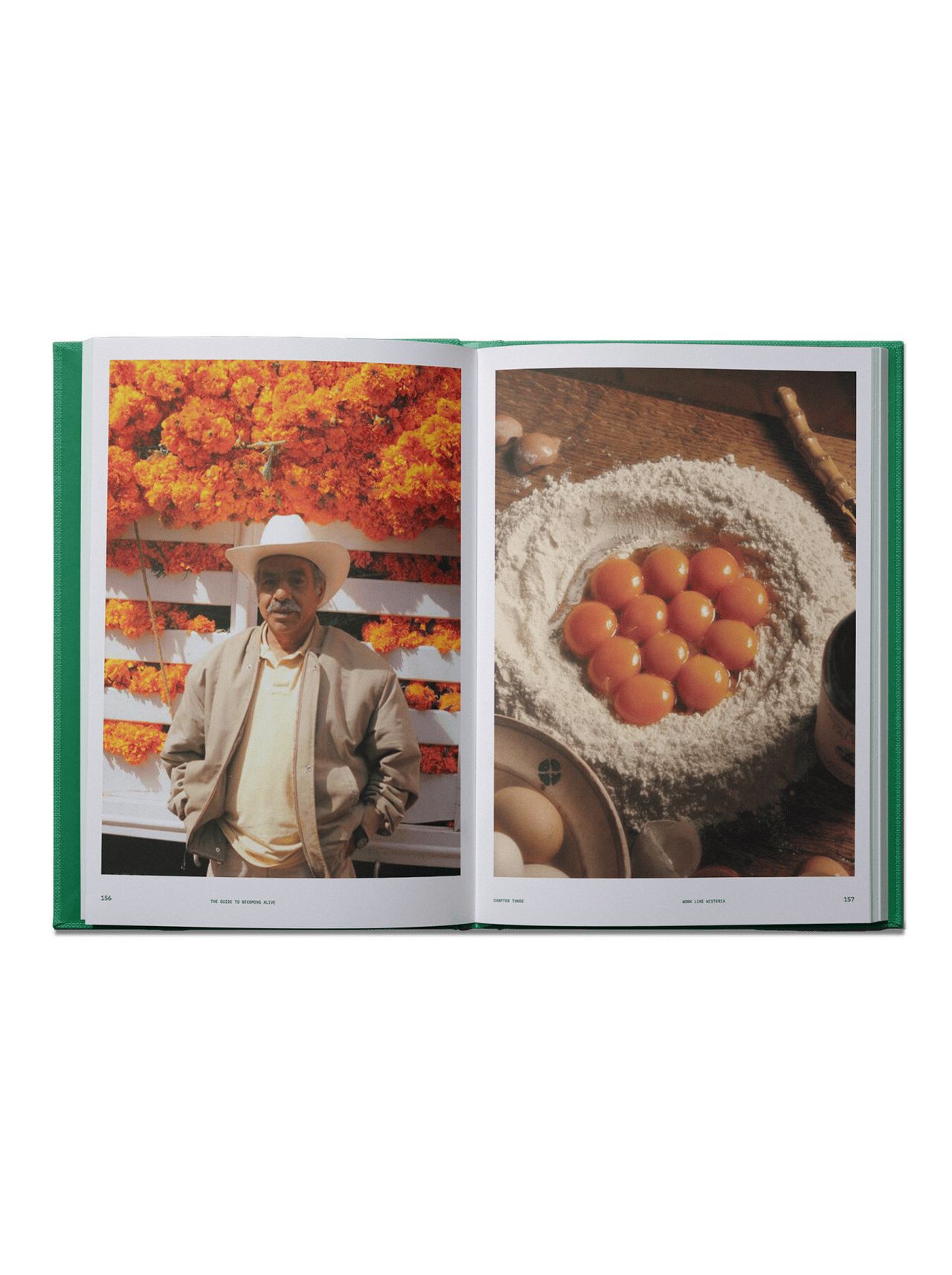
Interior spread from The Guide to Becoming Alive (2024) by Christiansen. (Courtesy Chronicle Books)
SB: Which is to say, a lot of the toxic farming.
RC: Yeah. That meeting happened a long time ago, before…. I feel like in my old life in New York, twenty years here, I had this wiggly worm inside me trying to get out, just figuring out how to do something. I come from a farming family. My parents are farmers. I wanted to figure out how to get into that. I couldn’t find a way in. And ultimately I did with Flamingo, but a long time before that, I was doing pitch decks on the weekend for a green brand, an organic brand. It was food, it was something. I was always thinking about it.
And I got one together and I had a friend who worked at Monsanto and I thought, well, they get so much shit, maybe their shareholder pressure, maybe there’s some idea internally to try to maybe chart a different course. I got the meeting and I presented the document for this new brand. I said, “They should fund it. I will help them build it.” Which was a responsible version of what they’re doing. And I remember it so well, I did the meeting, I walked out, it was a big glass, one of those big glass conference rooms with the glass on all sides. So anyway, they showed me out and then as I was leaving, I turned over my shoulder and looked back into the room and they were doubled over in laughter. I remember it so well. Anyway, whatever. I did it in the end.
[Laughter]
SB: You note in the book that the book in so many ways is a product of many years of feeling “unalive.”
RC: Yeah.
SB: And I was really struck by that phrase. And I assumed you were talking about the two decades of running your agency, Chandelier Creative, the one that you founded in 2005. What were you doing during those years that led you to this unalive feeling? Was it just the constant travel, the work stress? What exactly was it?
RC: I think it’s a universal thing we’ve all felt at some point or another. I think everyone listening knows they’ve been in a job where they feel both at the same time in it, like, how should I complain? It’s a lot of contradictory feelings. It was very exciting in the beginning to build a business. At some point it crossed over, and I don’t even know when it was, to really resenting the people I was working for, the brands I was working for. And some of the bigger brands, really just starting to resent the stories that we were creating that I was the leading person doing. And building these empty-calorie brands, these brands that don’t stand for anything. And building brand narratives for them and them making a lot of money from it. I started to resent them.
“My mom and dad are farmers. They are of the land. I was earning more money than they had ever seen. How dare I be ungrateful.”
But also, my mom and dad are farmers. They are of the land. I was earning more money than they had ever seen. How dare I be ungrateful, Richard, you and your little violin? How dare I be annoyed? So there was this contradictory thing of, I know this doesn’t feel right, but how dare I? I have a nice place in New York. And how dare I “woe is me” when there are so many people who aren’t as fortunate? And I think also to maybe mitigate that, I was drinking way too much. I was out. I was always working. Everyone would leave the office and I would just drink like a fish. I just adopted a lot of really bad behavior, and it was more just to self-medicate, I think. And then I’d wake up in the morning and do it all again. I just think that was just years of that.
I loved meeting the photographers that I’d always dreamed about as a kid. And I loved meeting all the creative people I always wanted to work for. And I loved—some of that stuff I just loved. I loved the velocity and the excitement of creating offices and building a business. I loved the challenge of that. I really did. I love being put to work. Put me to work, and I’m so happy. I’m very, very, very, very happy just to be in the trenches working. That part I love.
But the rest of it didn’t feel real. I didn’t think I was doing anything real. It all felt fake. The world doesn’t need more ten-dollar jeans. And I spent years telling them that they did. It was a bit of that really. I don’t want to say it’s purpose stuff because purpose—I write this in the book, purpose is such a scary thing and it’s such a big thing. It’s such a word that’s scared me. Like, what’s your purpose in life? And the “give back,” all that stuff, it gets so difficult to navigate. I had met Jane Goodall years ago, and I was like, Oh my God, this one’s living purpose, and I’m selling jeans. So how do I, what’s the delta there? It just was too overwhelming. Then I just felt like I got to a point where I was sleepwalking through life.
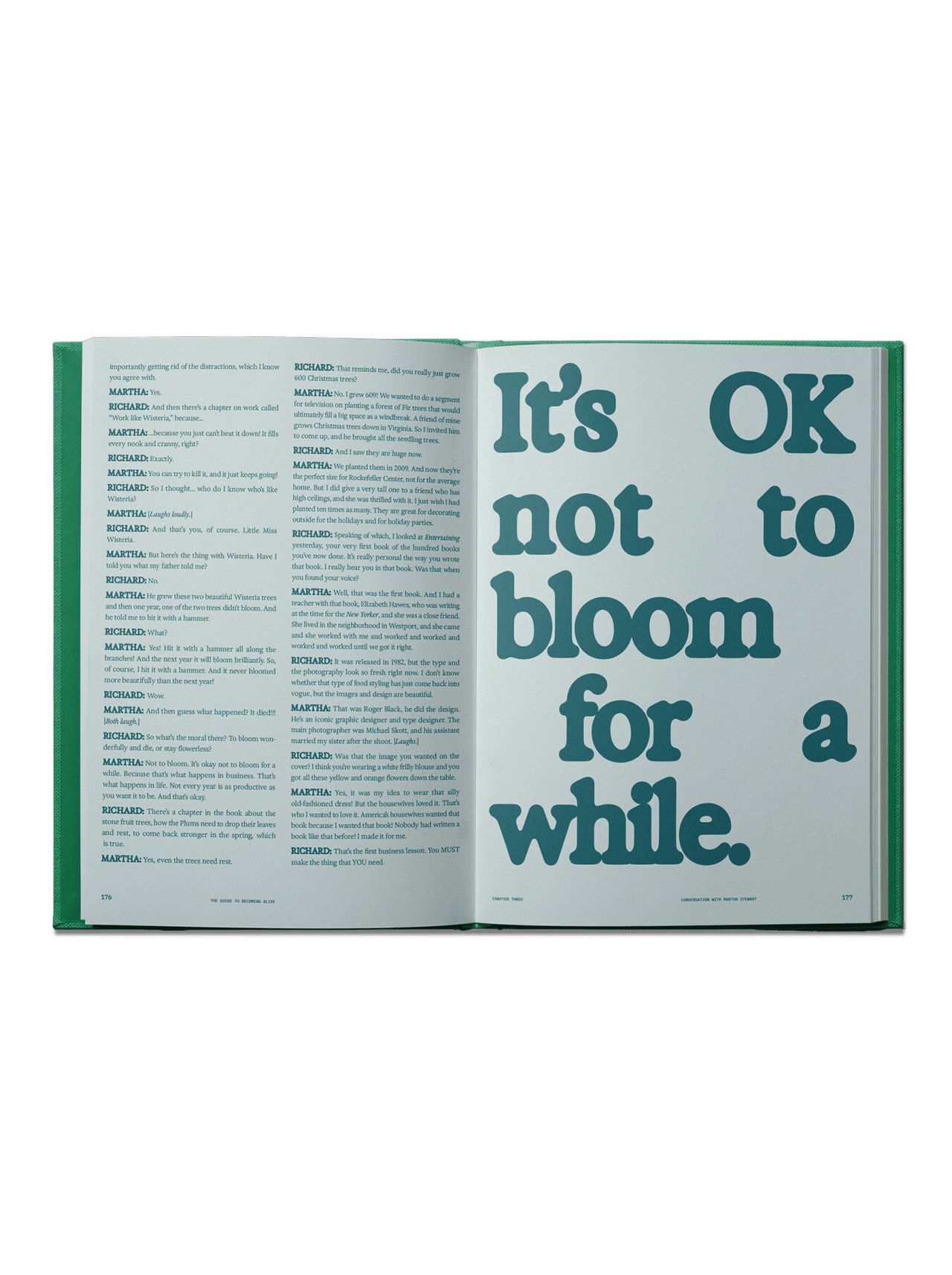
Interior spread from The Guide to Becoming Alive (2024) by Christiansen. (Courtesy Chronicle Books)
SB: Yeah. Well now it seems like you’ve built this seven-acre utopia, which in so many ways you have, but it’s not just like a smooth sailing journey building this. And you’ve noted—
RC: We ran out of money twice.
SB: Twice. [Laughter]
RC: We really haven’t figured it all out. It’s not been a straight line. No, we’ve really stumbled and wobbled through most of it, to be honest.
SB: I read you even had a lawsuit over the use of the word “Flamingo.”
RC: With Flamingo, it’s still going on. It’s been going on for years. Yeah. We have. Flamingo’s the name of the property. I never thought it was going to be a brand. Had we have known that, I would’ve called it something more interesting. But the horses are well and truly out the gate now. So we continue to figure out that stuff. Yeah.
SB: And your operation, obviously, has had to expand massively and—
RC: But at the same time, I don’t want to do the same thing I did again. I really have learned my lesson the first time. I built a big business. I was very proud of it. And it still, I’m not involved very much, but it’s still in business. My first business, it’s back on its feet. The team that is running it— It’s doing a great job. I’m not going to do the same thing again. We keep it very, very small. One thing, I have said this before, you probably read it in the book, people would come to us for years when I was running the agency and they’d have different briefs.
They’d always have a different creative challenge. But at the end of the day, I always thought they were asking us the same question, which is, “Help us act small again. We’re too big to be vulnerable. We’re too big to be funny. We’re too big to take a risk. We’re too big to try something.” Not be small, act small.
“Maybe some of what people have felt about Flamingo Estate is the smallness of it. It’s a very honest expression of my house, of my kitchen.”
I think the same thing happens to people as they get richer. I think the same thing happens to people as they get older. I don’t want to do that again. So the business has grown, doubled and doubled and doubled. But we are a very small team. I control every little part. It’s still my home. We meet in my living room, and I’m going to try to keep us acting very small. I write all the copy, I write all the Instagram posts, I dictate them in the morning, in the shower. I love being in it. It’s my home. And I think maybe some of what people have felt is the smallness of it. It’s a very honest expression of my house, of my kitchen.
SB: And maybe the future is more businesses like that. It seems to me that if there were a fracturing of these larger big companies, maybe that opens up room for a lot of smaller, more creative companies to exist and fill the space.
RC: But I don’t think it’s about being small. I don’t think it’s about being the largest ones, it’s about acting that way. I have said before as an example of it in practice. Now that we have investors and the team, they’re like, “Oh, Richard, you have better things to do than write the Instagram copy. Isn’t there something more important you should be working on?”
But then I was checking in to a hotel. I was at a conference a few years ago and this guy in front of me who was a big CEO of a big, big, big brand was there. It was a gaggle of his team around him. Everyone was fussing around him. And this colleague of his came up and was like, “Oh, I want you to meet Sally. Sally’s going to run the social media.” And Sally was fresh out of college and had no experience at the company. You could tell she was so intimidated.
And I just wanted to shake him really hard and say, “Why is the least experienced person in your business in charge of the biggest window inside it? You are the guy that knows every moving part. You should be doing your own social media. We’ve got it all upside down.” I really believe that with my full heart. I think we need to lead with our heart.
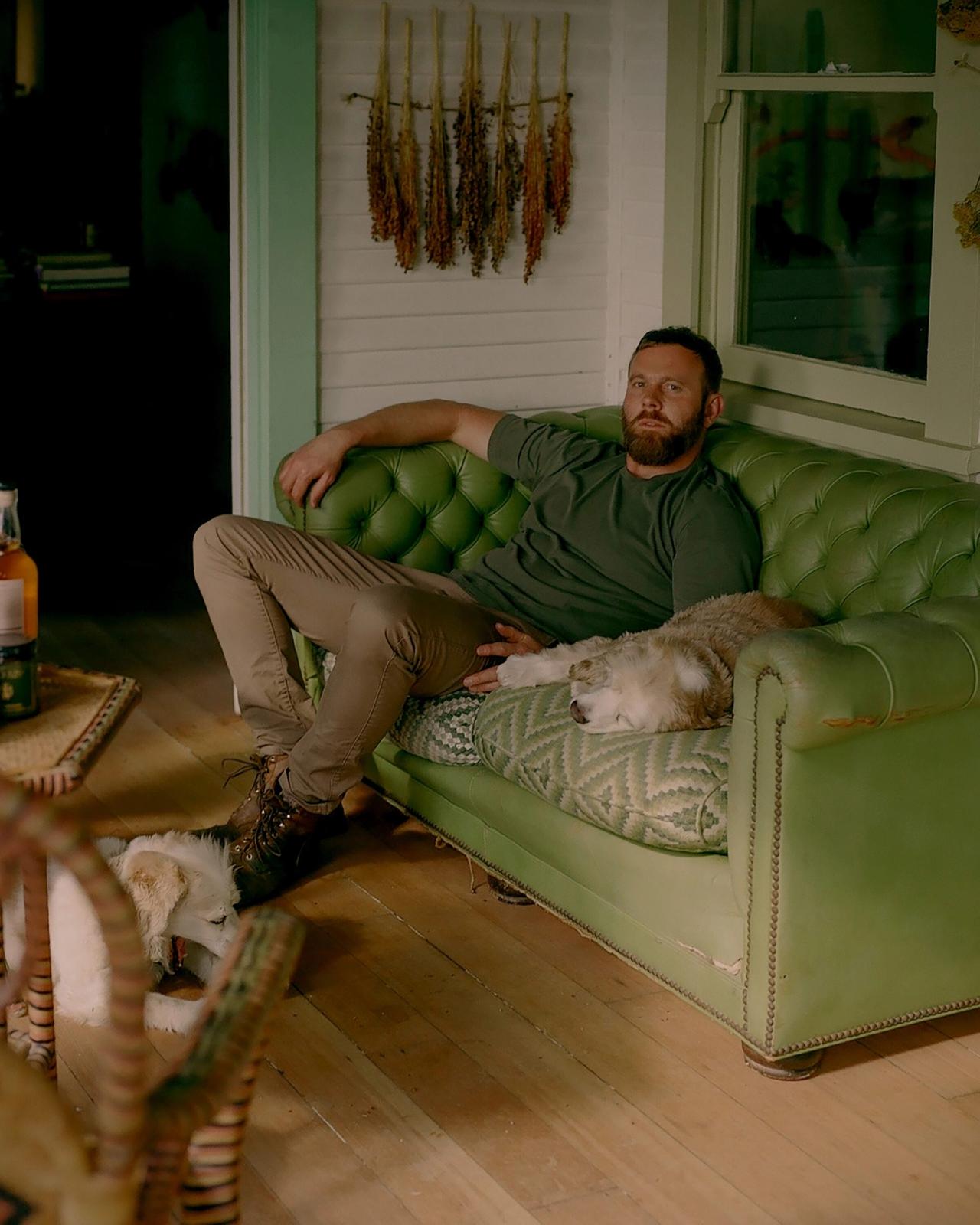
Christiansen at home. (Photo: Natalia Mantini. Courtesy Flamingo Estate)
SB: So you touched on this, that you grew up on a farm in northern New South Wales in Australia, where you were until 16 or 17? I guess, looking back now, how do you think that experience has shaped you? What sort of things about running or operating a farm did you learn, observe, and do you see yourself?
RC: I think anyone that’s the kid of farmers knows how hard that work is and that it’s cause and effect. You get up early, you do the work, you come home tired. It’s unforgiving work. My parents really worked hard and they showed me and my brother the value of that. I think there was, at least for us, an honesty in living that way. We were very much growing food and growing things we wanted.
We had such a fun childhood. We didn’t have much technology. We were running around the property. We were riding our bikes. We were just out. We were very active. We were not in a city. We had no friends. We were so remote. We never ever had one friend stay over or come over—not in our whole childhoods.
And then there were some things like my mom and dad would come home, filthy dirty. My mom would run a hot bath. She’d throw this cheap supermarket soap in the bathtub. For her, that was the ultimate luxury, the only thing she did for herself. And my brother and I as little boys would sit on—I have a twin brother—we’d sit on the floor of the bathroom and we’d chat to my mom about her day for hours while she took a bath. And sometimes my dad, too. For us as a family, it wasn’t the dining table that was the place we had conversations. It was the bathroom floor.
SB: [Laughs]
RC: Still today, that’s my greatest joy: taking a bath. It’s the reason I obsess over bars of soap.
SB: Bathing is a great pleasure.
RC: The greatest doctor, taking a hot bath.
SB: Leonard Koren has an amazing book on this.
RC: Oh! I have to get that book.
SB: Leonard Koren on bathing, everyone get the book.
“That’s my greatest joy: taking a bath.”
RC: So that was one thing, and then that really pivots directly into what I’m doing now, I think perhaps that….
SB: Well, the first building you built at Flamingo—
RC: It was a bathhouse.
SB: It was a bathhouse.
RC: Mm-hmm. Because I lived in New York with, when I first got here, six roommates or something in a one-bathroom, a terrible apartment on 28th Street above the flower market. And I just remember thinking, “When I grow up, I want to have a bathtub.” Also, I’m tall. It’s really hard for me to have a bathtub that I can fit in. I was like, “One day I’m going to build a bathtub that’s so big I can lay down in it.” And so I did. [Laughs] It was the first thing we built. It’s beautiful.
And it’s actually also the reason we started, sort of one of the other reasons we started the brand is because, I’m sure you read this, that for a long time I was a very loyal customer to another brand and I was using a lot of their body wash. The water from the house runs directly into the garden and my roses were dying. And I love my roses, I love my garden so much. I was like, “Hmm, it’s the body wash.” That’s the first time I looked on the back of a bottle. I was like, what do those words mean? I’d never done it. I never cared to do it. And then I thought, Well, why would I use it on my roses? Why would I use it on me if I can’t use it on my roses? Before we properly started selling it, we were making our own soap just for that reason.
SB: We only have so much time, so I have to skip over here. But you leave Australia, you go to Europe, you study law in London, you work at Benetton, this amazing company in Italy.
RC: Amazing company, at the time.
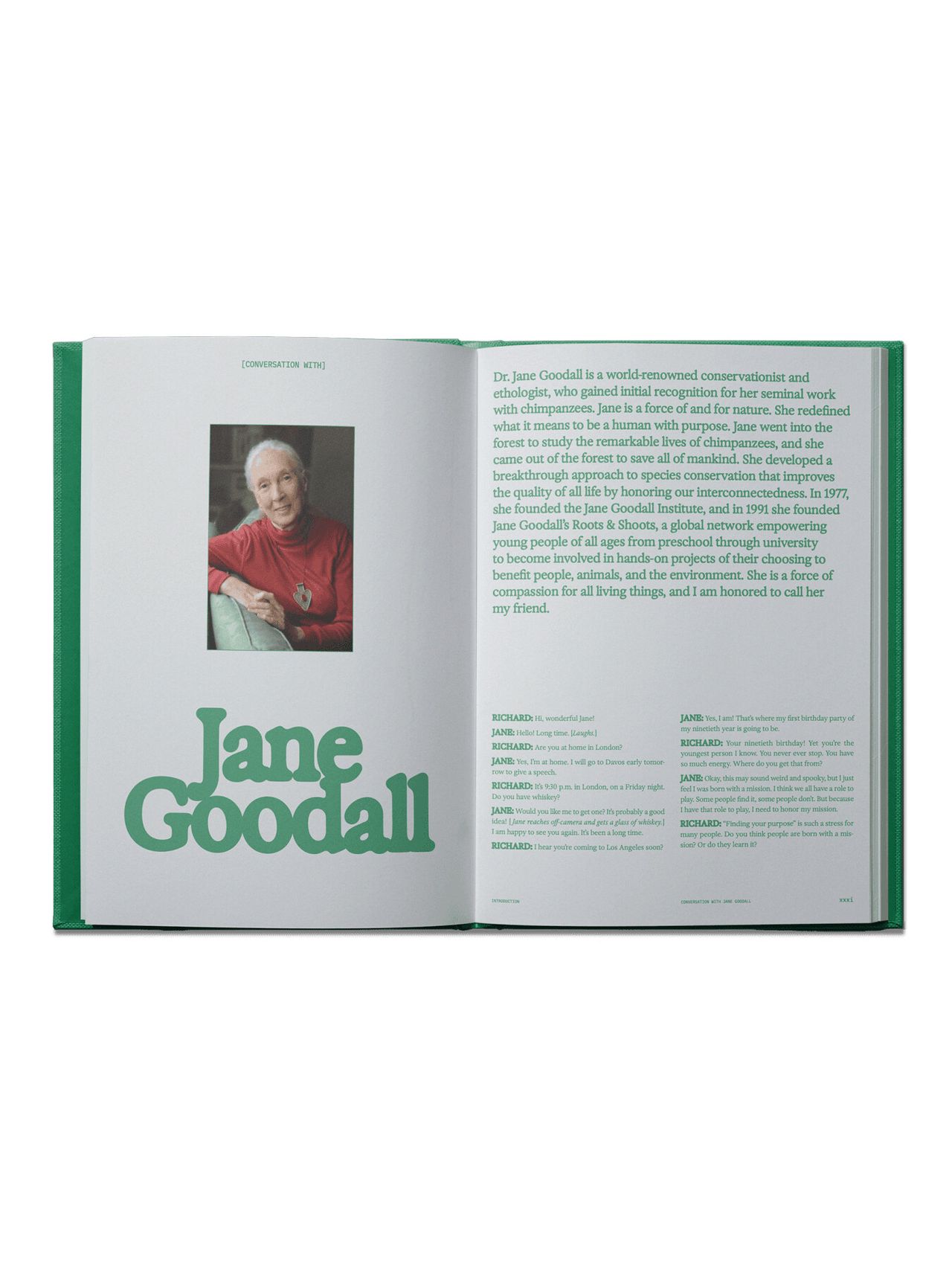
Jane Goodall in The Guide to Becoming Alive (2024) by Christiansen. (Courtesy Chronicle Books)
SB:Colors magazine, epic. And then find your way to New York. And during that New York journey—you write about this a little bit—there’s this moment you’re finding yourself, you’re hiking Everest and you’re reading—
RC: Jane Goodall’s book.
SB: Exactly.
RC: Yeah.
SB: Tell me about that. What led you to Everest and ultimately to having that book with you?
RC: Do you know—it’s funny, you’ve got such good questions. I remember being on a plane and really feeling, just wanting to scream, “How do I shake myself out of my routine?” I was thinking—I’m kind of scared of heights—and I was like, what can I do that is so out of my comfort zone that I might be able to outrun myself? And it was that. I literally just Googled: How do you get to Everest? And I figured it out. I got on a group. I trained and trained and trained and trained and trained. I trained and trained and trained.
Then, as I was leaving, oh, my God, everyone thought I was absolutely mad. They couldn’t even fathom that I would do it. I couldn’t fathom I would do it. [Laughs] I was leaving and it was someone in my office. It was a wonderful guy. He was like, “Do you know who Jane Goodall is?” And I said, “Not really.” He said, “Take this book and read it.”
And I read it. The trip was horrible. It was awful. As soon as I got there, I knew I’d made a mistake, but I soldiered on. And every night I just couldn’t wait to get in my sleeping bag. And I would read Jane’s book. The trip was quite long. I promised myself that when I got back down to Kathmandu, I would call her and I’d work for her. And I was still at the agency at that point. I came back and I said, “I want us all to work for her”—she’d become a pro bono client—and so we did.
I met her and then she’s the one that said, at some point, “Why don’t you take all the stuff you’ve learned over the past twenty years and stop selling people shit they don’t need, and do something with it?” And that was one of the early pushes to start something to do a brand was Jane.
What’s interesting about that trip—and I know we’re running out of time—but I had met people on that trip that really moved my head in a way I’d never thought about. I met these two people, Jane and Igor, who I mentioned in the travel chapter. We then went on to hike to the South Pole, to the geographic South Pole across Antarctica and the North Pole. I met these people who live at the edge of the map. Their idea of luxury, all those people I met on those trips—it’s not going to an Aman hotel. It is going to the edge of the earth and getting adrenaline and feeling close to nature in a way that’s not hokey. I treasured those times.
“Sometimes I want to go to just get my sleeping bag and sleep down with my goats.”
And actually I think the stress of, again, starting a business, I started to feel like I was losing touch of that a little bit. And I just, not long ago, called the whole group back together and I said, “Let’s go, I need another hit of this.” So we went climbing in the Faroe Mountains—the Faroe Islands, rather—up in the Arctic circle, which was beautiful. Beautiful, beautiful, beautiful. There’s sheep everywhere and it’s just windswept and it’s this wild, rocky collection of islands in the middle of the sea. It’s beautiful. I can’t lose sight of that. That’s my homework to keep doing that.
SB: So in a way, that experience on Everest, reading Jane’s book, ultimately led you in a very roundabout way to Flamingo Estate?
RC: No, it did. And also the thing, I’m my happiest when I’m in a sleeping bag and I’ve got not—sometimes I want to go to just get my sleeping bag and sleep down with my goats.
SB: [Laughs]
RC: And there’s this misconception that I’m A, a fussy person. I live in a fancy—a house that photographs well. I’m not a fussy person. I don’t buy much stuff. I don’t have many clothes. I buy furniture because I like design, but I would be as happy sleeping with my goats as I would be somewhere fancy. And I think that that’s the one thing that I think people are sometimes surprised at—my friends that know me know I really am quite a basic person. And I just want a hot bath and some good food and I’m happy. And I really, that’s all I need.
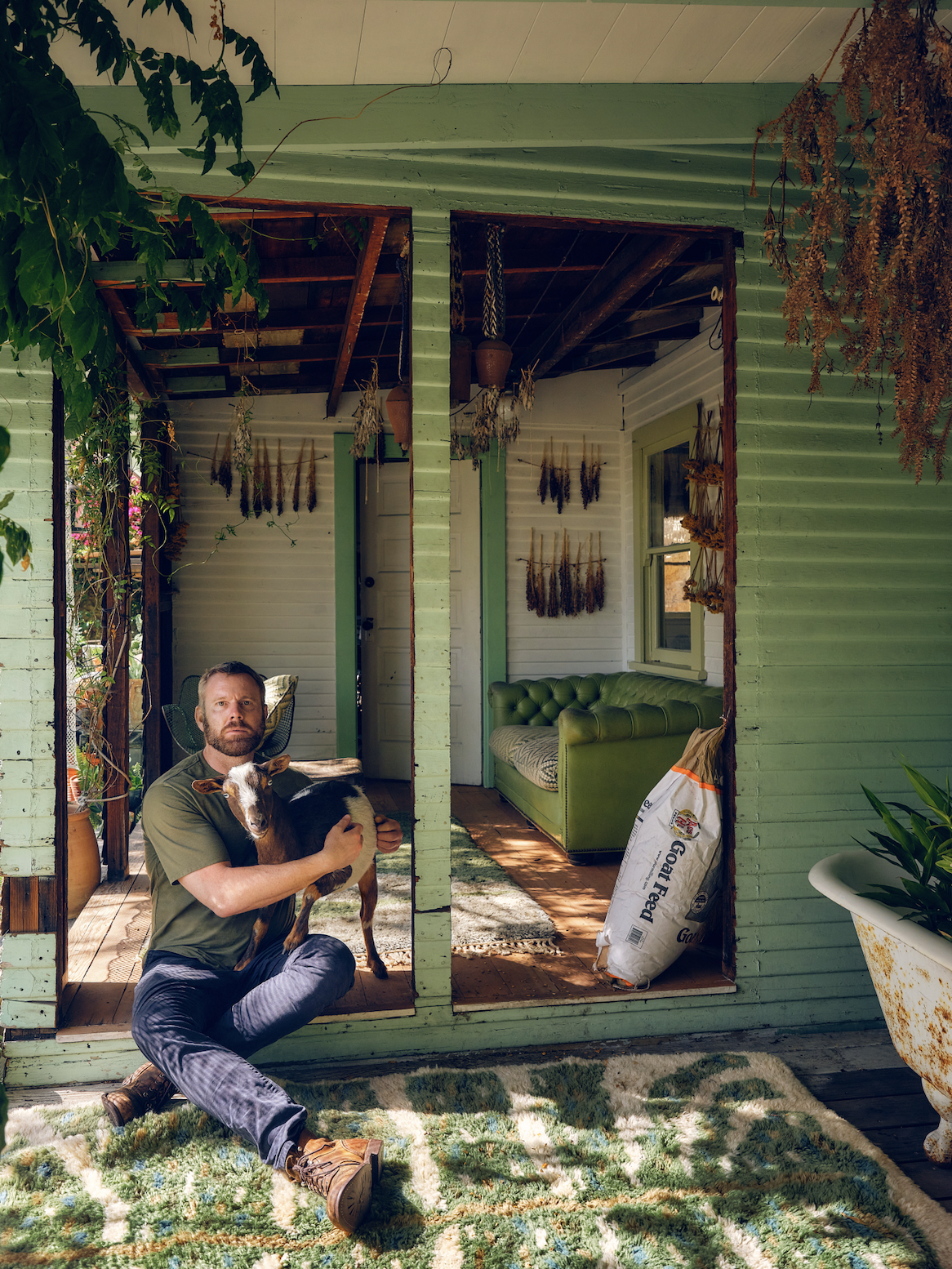
Christiansen at home with one of his goats. (Photo: Hugh Davison. Courtesy Flamingo Estate)
That trip reminded me of how little I needed. All those trips, even hiking across Antarctica, how little I needed just to be completely and perfectly happy and obsessed. In fact, all the stuff that we acquire, it more gets in the way of being happy.
SB: Yeah. Well on that point, actually—and your book delves into this little bit—is the notion of pruning.
RC: Mmm. My favorite chapter.
SB: I think pruning really does serve as a good metaphor for your work. And also, I think, what you’ve done with your life.
RC: Thank you.
SB: You write a bit in the book about bonsai and this visit you made to Rumiko Murata, who, along with her son and husband, own a bonsai company in a suburb of Tokyo. It’s this business that’s been in their family since 1929. I think there’s such a power to the longevity of their work, the slowness of it. What did you learn being with them? Do you see the work you’re doing in a similar light? By that I mean just embracing slowness, time, this value of pruning.
RC: Well, there’s two different things. Let’s talk about pruning first. “Prune Your Roses” is a great chapter. Anyone that’s a gardener knows that you need to get the scissors out to your roses for them to come back really strong. Chop, chop, chop. We need to do the same thing in our lives. We need to cut the stuff that’s not working. Cut the job, cut the people, cut the partner, cut the stuff, get rid of the stuff that’s not working. We all need to have scissors in our back pocket at all times. So that’s one thing about pruning.
The interesting thing about that trip, though, to the bonsai family, was—I don’t know whether you remember reading this—you can’t pick a bonsai. They will give you the one that they’re called to give you. If one even does call them to give you. There’s this real upside down—the customer is not right there. Sometimes the customer is not even applicable, which I think is really refreshing.
SB: [Laughs]
RC: From a business, obviously it’s not the same thing for us. We’re not in the same way, but there’s for them a deep respect for just nature in a very tangible way in that business, which I love. That was a wonderful trip.
And also that chapter, we talk more in that chapter about pruning olives. You need the light to reach the center of the plant for olives to do really well when you cut the olives back. I like that metaphor as well. If you’re cutting stuff in your own life, you’ve gotta get the light to reach the center, which is where all the good stuff is. For me, I keep thinking about that a lot.
SB: We haven’t talked about this so much. You did mention your bookstore that you used to have in L.A.
RC: Yeah.
SB: And, in addition to food and gardening and farming, you’re also this big fan of print.
RC: So much.
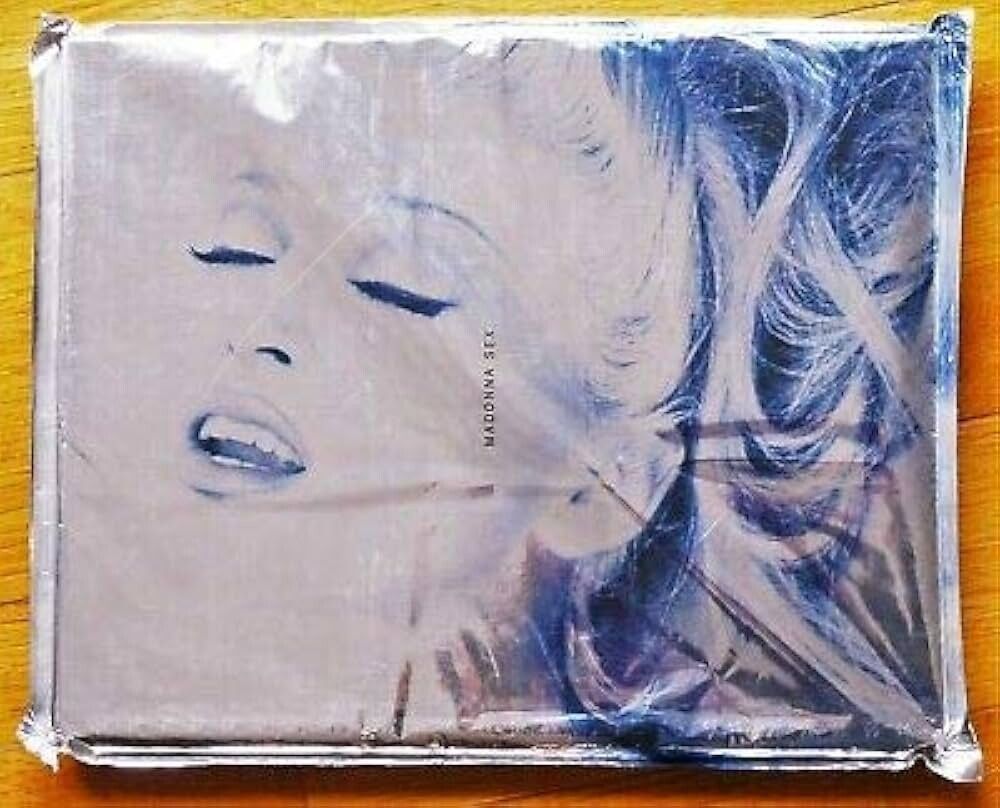
Cover of Sex (1992) by Madonna. (Courtesy Warner Books, Maverick, and Callaway)
SB: Of books and magazines. And I guess in some ways that’s what got you here. I know even Madonna’s Sex book was deeply inspiring to you as a young guy.
RC: Yeah, or Fabien Baron’s work and all the foreign magazines my mom would get when I was a kid on the farm. All the Laura Ashley catalogs. Actually, for Christmas last year, Harvey, my partner, bought me every single Hermès catalog ever printed. He sat on eBay for a year. And wow, what an amazing gift. I do love print. Sorry, I know you’re about to ask me a question.
SB: [Laughs] Yeah. Well I wanted to bring it up because print has become another luxury in this time of digital frenzy.
RC: Yeah.
SB: And you make a twice-a-year magazine with Flamingo Estate?
RC: We did one this year.
SB: And before Covid you did have this bookstore. I know you’ve done various print campaigns over the years with your agency.
RC: Yeah, many.
SB: What is it for you about print that sticks?
RC: Well, I think the thing today, if we’re going to do it, the juice has to be worth the squeeze. The print magazines that we do for Flamingo, they’re beautiful. It’s a hundred pages. We labor over them. It’s interesting because, in the first version of it—I shouldn’t say this—but the storytelling of that, we were printing it so far out because to be able to afford to do it, we had to print it earlier. I would be putting products in that catalog-slash-magazine that we hadn’t even figured out how to make. We were just hoping it would fall into place.
Or I would say to the team, “We’ve just done a beautiful story on Japanese soaps and it’s gone to press, so we’re going to have to find a way to make them.” And so in some ways, the story, the curiosity around it—the azaleas, the rhododendrons, whatever plant we were talking about—the story led the product.
SB: Yeah, lit the fire.
RC: Because I spent twenty years of someone handing me a pair of jeans and saying, “Go build a story around it,” with no context for what the backstory was. So this time I was like, “We’re going to do the opposite way. We’re going to fall in love with the story and then we’re going to figure out how to make the product.”
SB: That’s beautiful.
RC: The soap we made with the sea buckthorn oil that the Dalai Lama had blessed from Nepal was one of the best examples of that. We photographed this golden orange soap that came from rhododendrons and from sea buckthorn oil. And at the time the team was so angry with me, because they had no idea how we were going to make it in time. And we did. So yeah, there’s something about that. There’s a joy with that sort of storytelling. Also, for me, it’s a bit of a push against this incredible frustration that we, and even now, even the team’s like the first two and a half seconds of an ad, the time we have to get someone’s attention on their phones. It’s ridiculous.
“I’m a very big believer that if you jump, a net will appear.”
And even in the last six months, I’ve noticed that the assets exhaust. We’ll have an ad asset or a photo in circulation, the growth team will— It is a couple of days and we have to replace it. Not just like, Oh, it’s going to stay up for three months, no now, or maybe it’s one month. Now it’s up for a day and we have to replace it. The speed at which things are exhausting themselves is astonishing. To be able to print something that’s large—the magazine’s very large, it’s oversized. It goes in a hard envelope. It’s beautiful. It’s sent to people who are customers and it sits on some people’s coffee tables. I hear a lot about people reading it, and we have a chance to just have more time to spend on telling a story. It’s beautiful.
SB: Well, I love that story can lead product.
RC: I’m going to get in trouble. [Laughter]
That’s true. No, but so many good stories in those early issues that were just ideas we had. Wouldn’t it be beautiful if we could do that? And then I’m just a very big believer that if you jump, a net will appear. I’m always like, “We’re going to make the sample. We’re going to photograph it, and we have three months to figure it out. Everyone, let’s do it.”
SB: And you’re making something that’s sexy, which seems both on-brand for your brand, but also on-brand for the house and the history of the house. Which we haven’t really touched on, we don’t have a ton of time to touch on, but I’ll briefly say was a porn studio.
RC: A prolific porn studio.
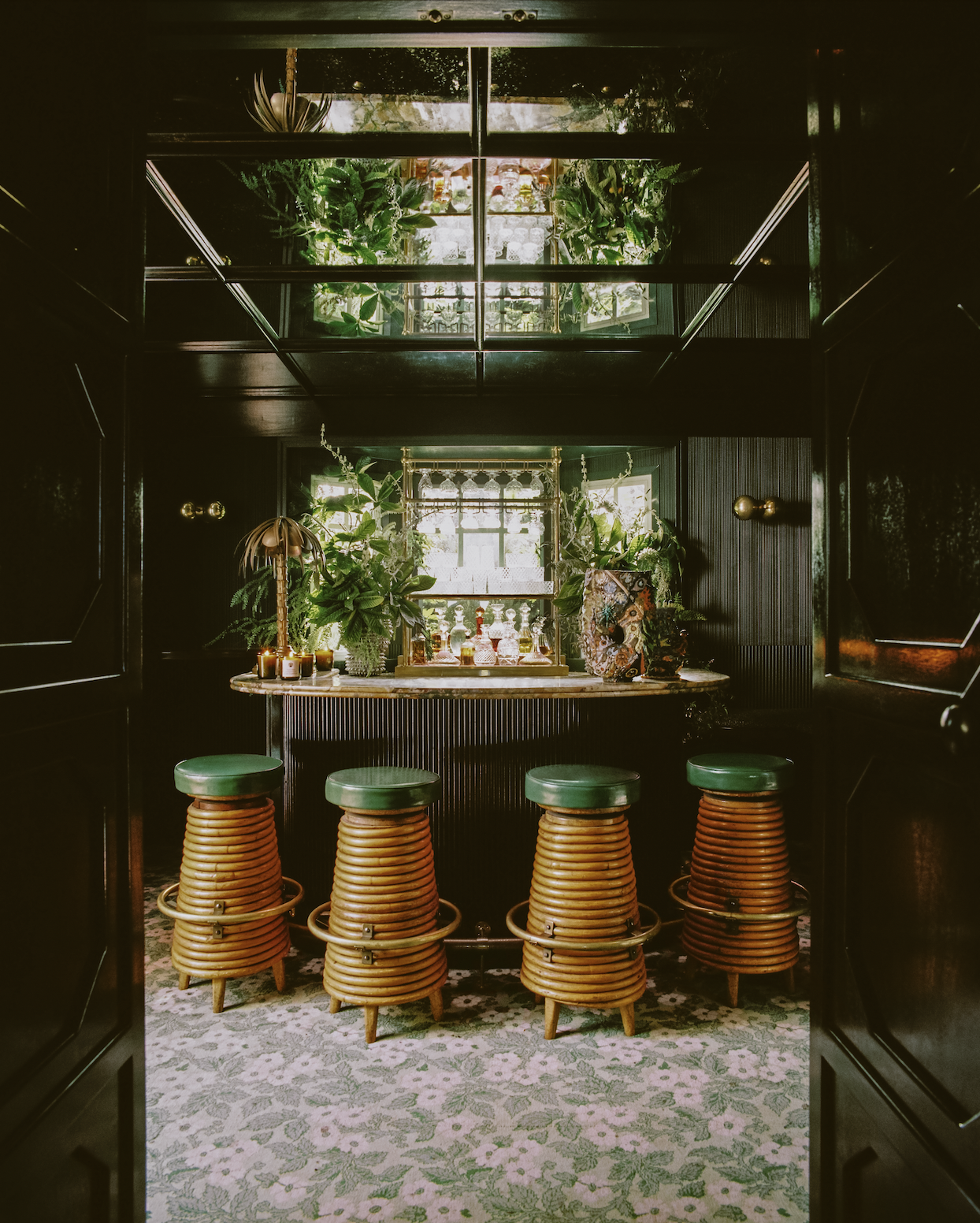
A bar at Flamingo Estate. (Courtesy Flamingo Estate)
SB: A prolific porn studio from the fifties to the eighties, which you inherited in some ways. Obviously overhauled the house, but—
RC: Yeah, the porn’s easy to joke about. And when we got there, there was tons of those films still there and some stuff. It is easy to have fun with. The thing about it, though, is that that house in the forties and the fifties, from what we now know, was really a hedonistic playground. There was a lot of fucking, but there was also a lot of food and a lot of music and a lot of art. A place for weirdos to come, a place for dreamers to come. The studios used to be in Highland Park, not in Hollywood. Highland Park was the first center of Los Angeles. The first train station was there. That was where people would pull up from the gold rush. So I think I’m over-romanticizing it. People would come up the hill for this hedonistic playground. It really was this very special place.
And then the city grew around it and it got dilapidated and it was hidden in plain sight. But in the beginning, that house was a living, breathing thing. So I think I’ve kept my promise to bring that back in a different way. But it’s got a really interesting vibe when you’re there. It’s not a fancy part of town. It’s not in Beverly Hills, it’s not in Hollywood, but it’s got a very special energy. I think that’s because of all the people that have gone there.
SB: You describe Flamingo Estate in the book as a “hedonistic enclave of sun worship, folk mythologies, and psychedelic remedies.”
RC: That’s right.
SB: I’d say that’s carrying the torch forward.
RC: [Laughs] Yeah.
SB: Well, just to finish, you end your book with a line from a Mary Oliver poem, and I thought we might end our interview there, too. And it’s, “Tell me, what is it you plan to do with your one wild and precious life?”
RC: Yeah. I haven’t figured out the answer totally, but I know I’m in it. It’s the same thing Jane Goodall asked me in the very beginning of the book, which is, “Can you take everything you’ve learned and do something with it?” I think…. I have great empathy for people who feel stuck and I have many friends—I felt that way at some point—many friends, but that tremendous anxiety of feeling stuck in doing something new or what am I going to do next? Or how am I good enough? Or how do I compete against that person? Or the constant— Comparison is a thief of joy. And this constant comparison that stops us from doing something.
But I believe there’s great, great deep power in just movement. A baker becomes a baker by baking, a builder becomes a builder by building. It’s just doing. The doing is where the power is. And what’s the worst thing that could happen? For me, that’s a nice way to finish the book.
“Just do your thing. And when you do it, the joy will land at your feet.”
The other quote that’s in the book, it’s on a lot of our packaging, is: “The flower doesn’t blossom for the bee. It blossoms and the bee comes.” This idea of: We can’t do it for someone else. We can’t do it because of someone else. We can’t do it looking at someone else. Just do your thing. And when you do it, the joy will land at your feet. I know that. I know that with my full heart.
SB: Thank you, Richard.
RC: [Laughs] Thank you.
This interview was recorded in The Slowdown’s New York City studio on November 19, 2024. The transcript has been slightly condensed and edited for clarity. The episode was produced by Ramon Broza, Emily Jiang, Mimi Hannon, Emma Leigh Macdonald, and Johnny Simon. Illustration by Diego Mallo based on a photograph by Ana Lui.
